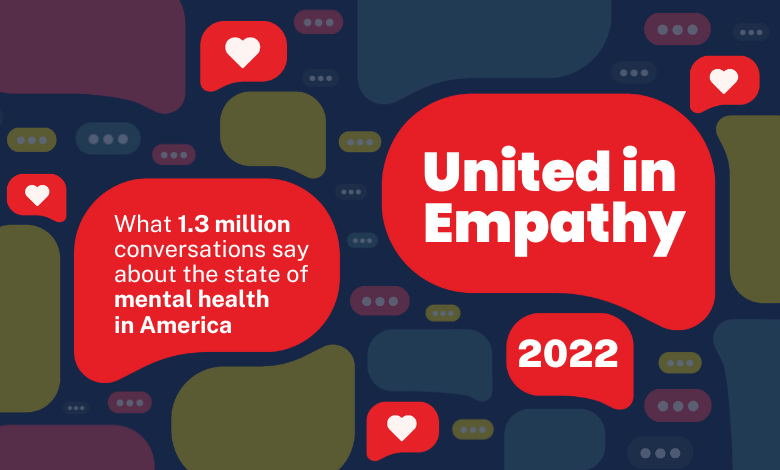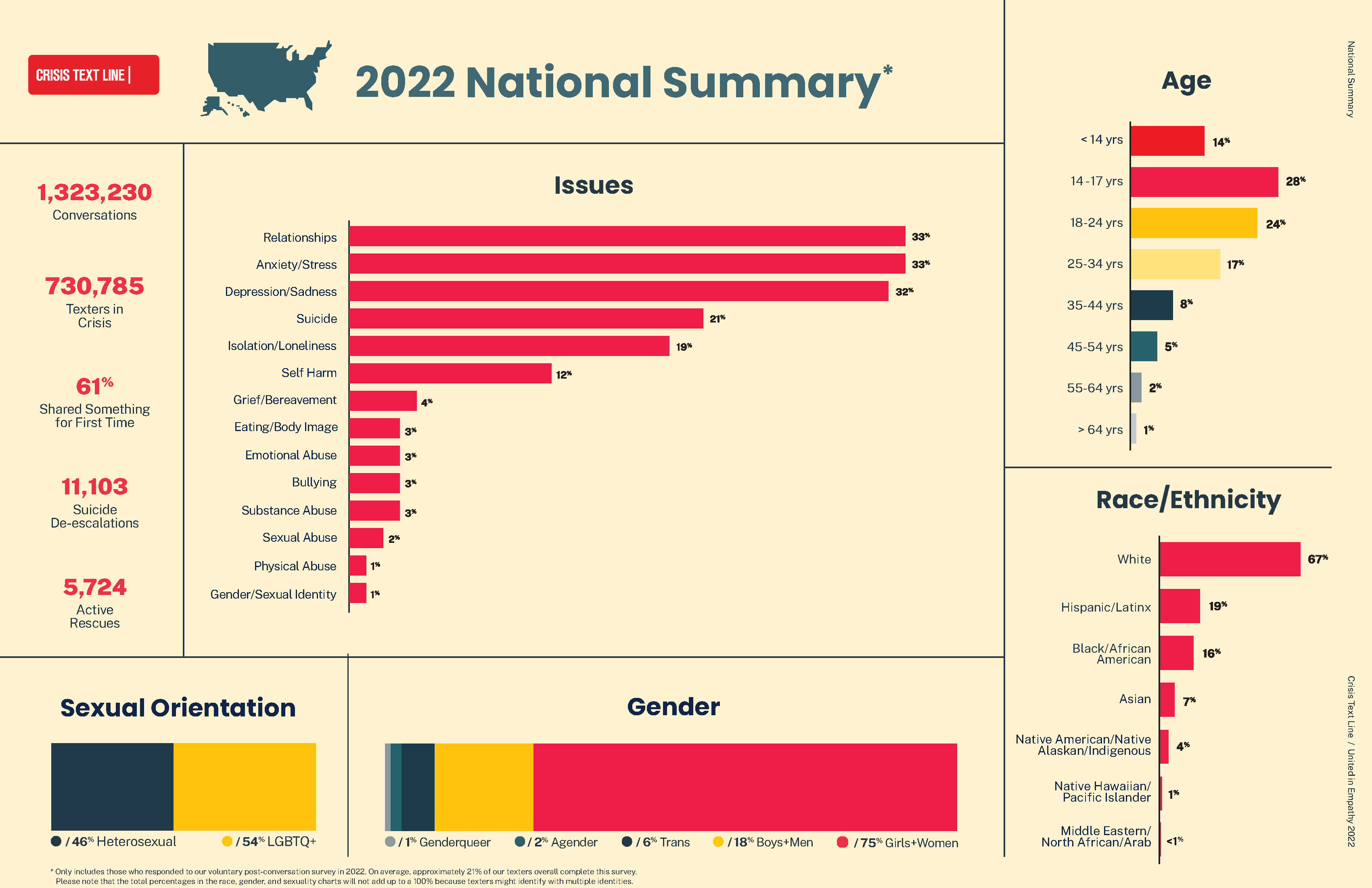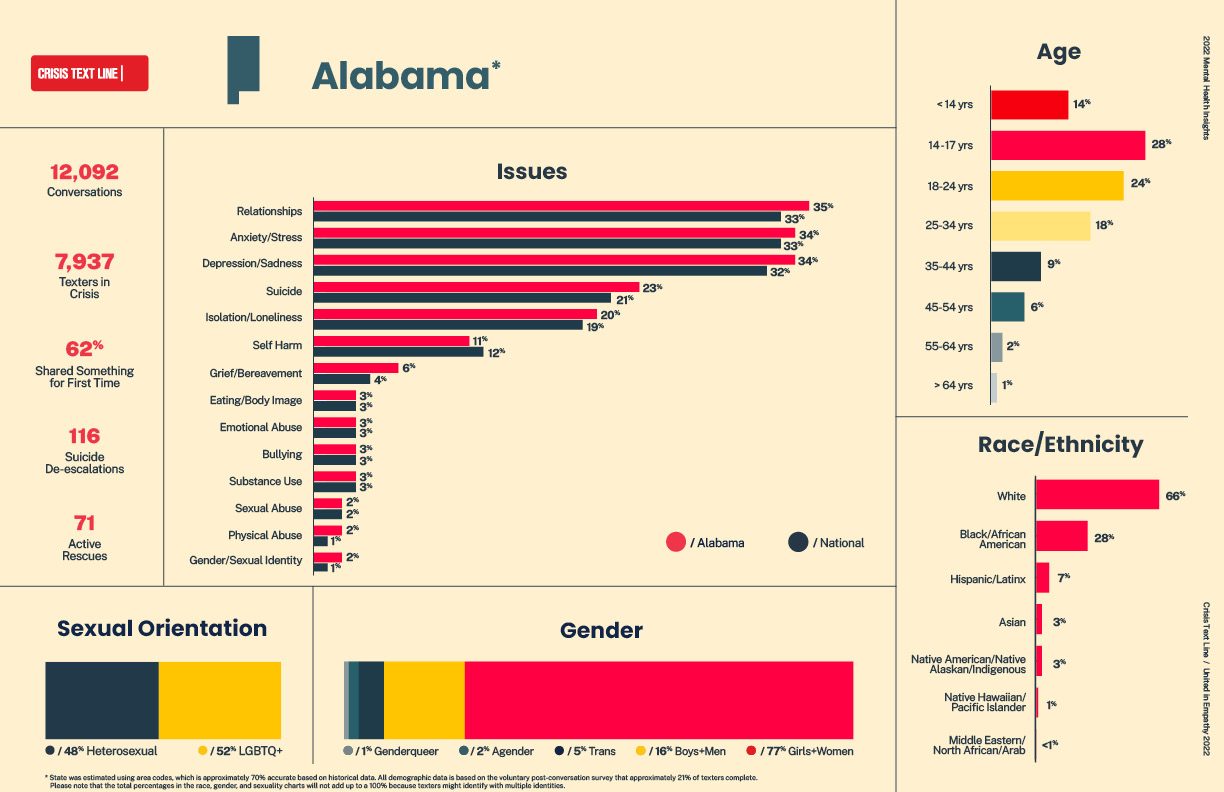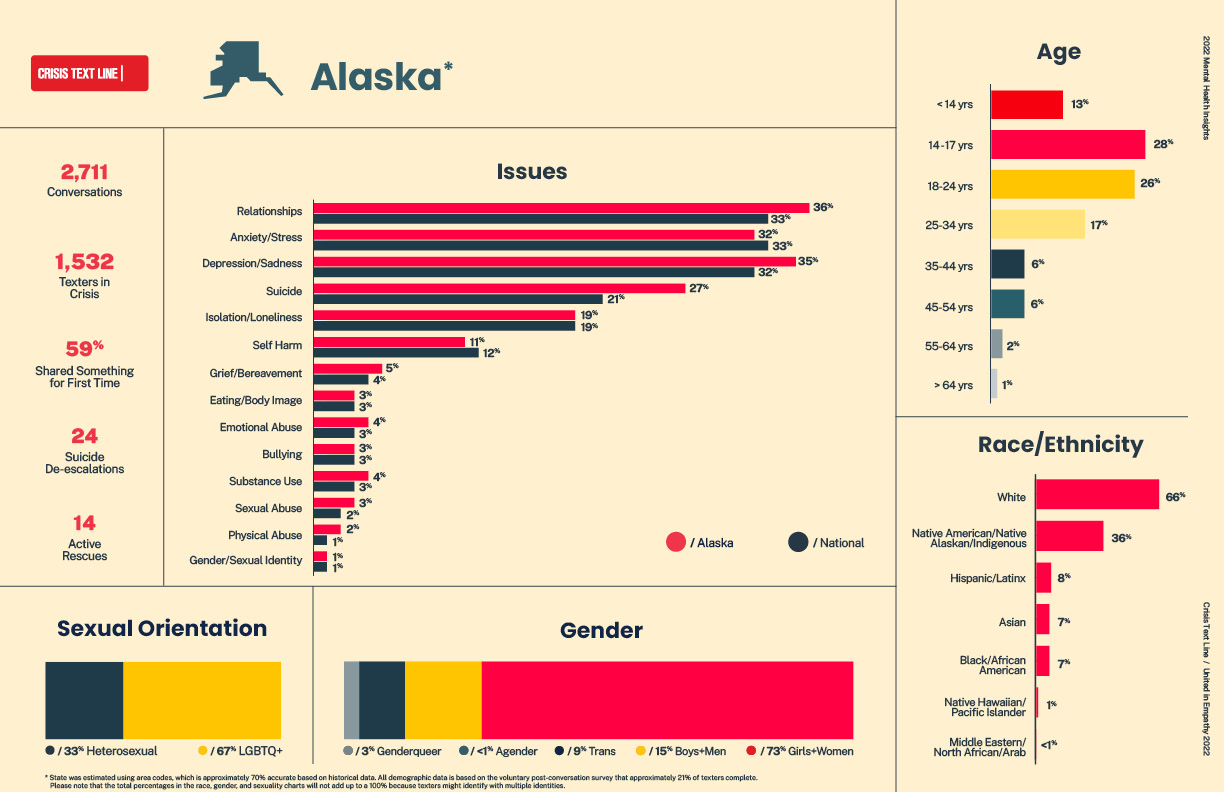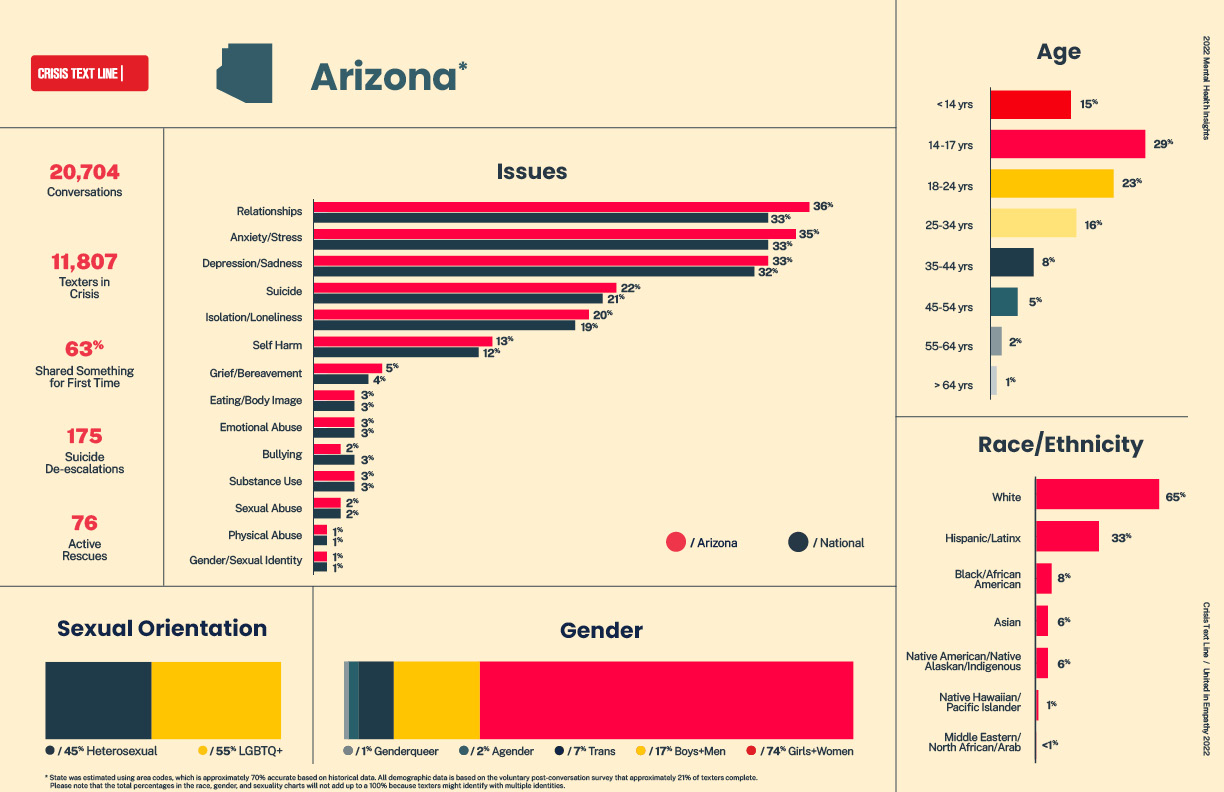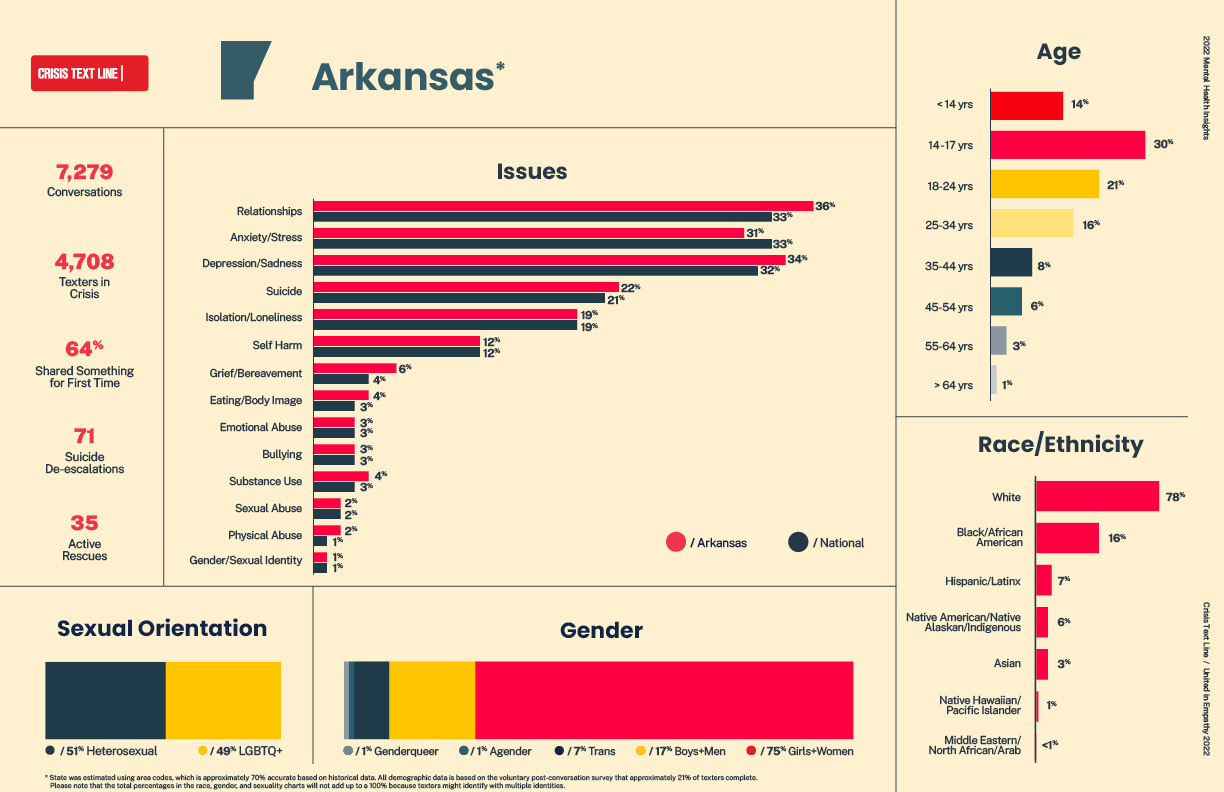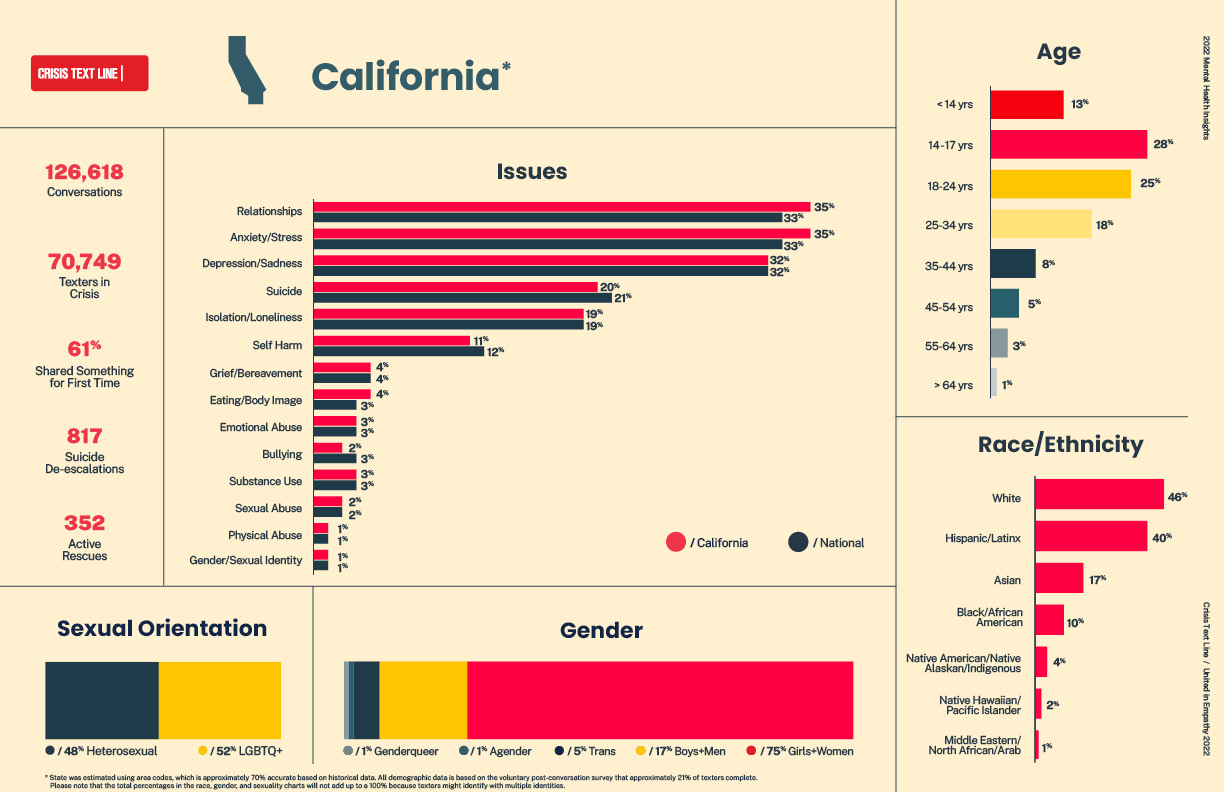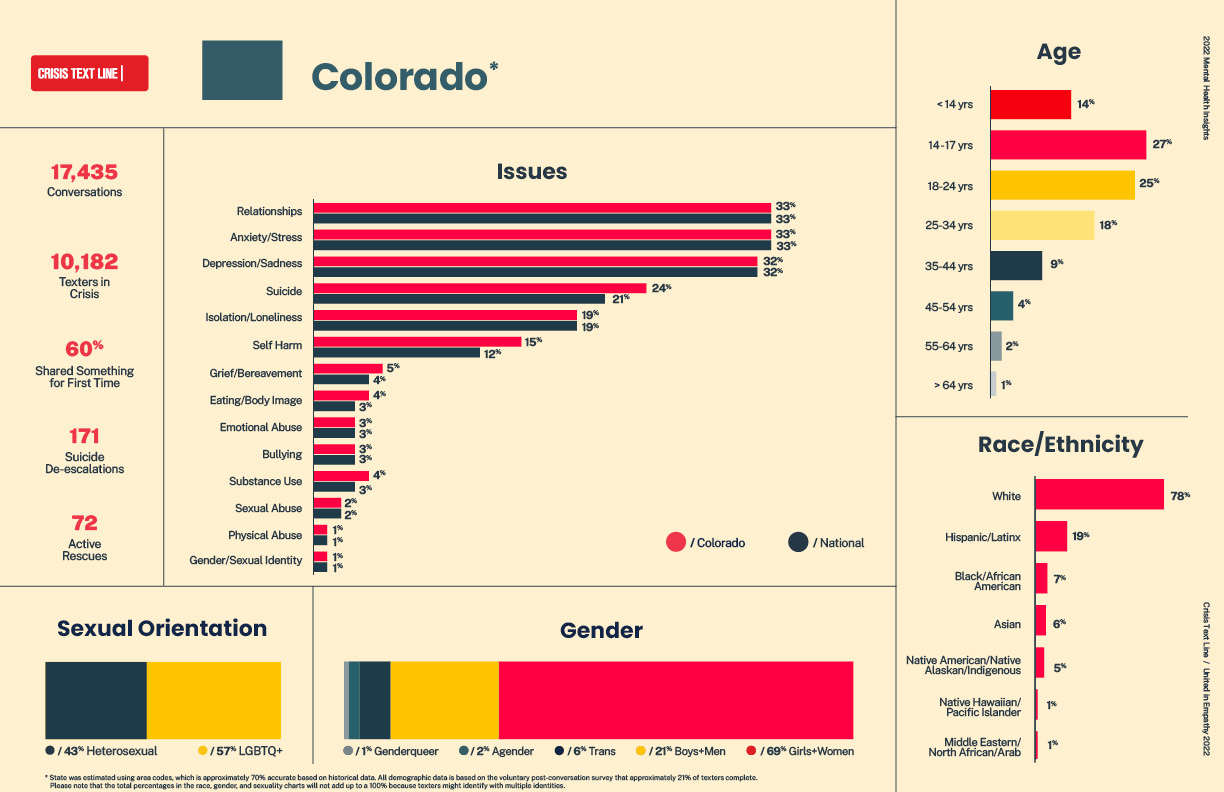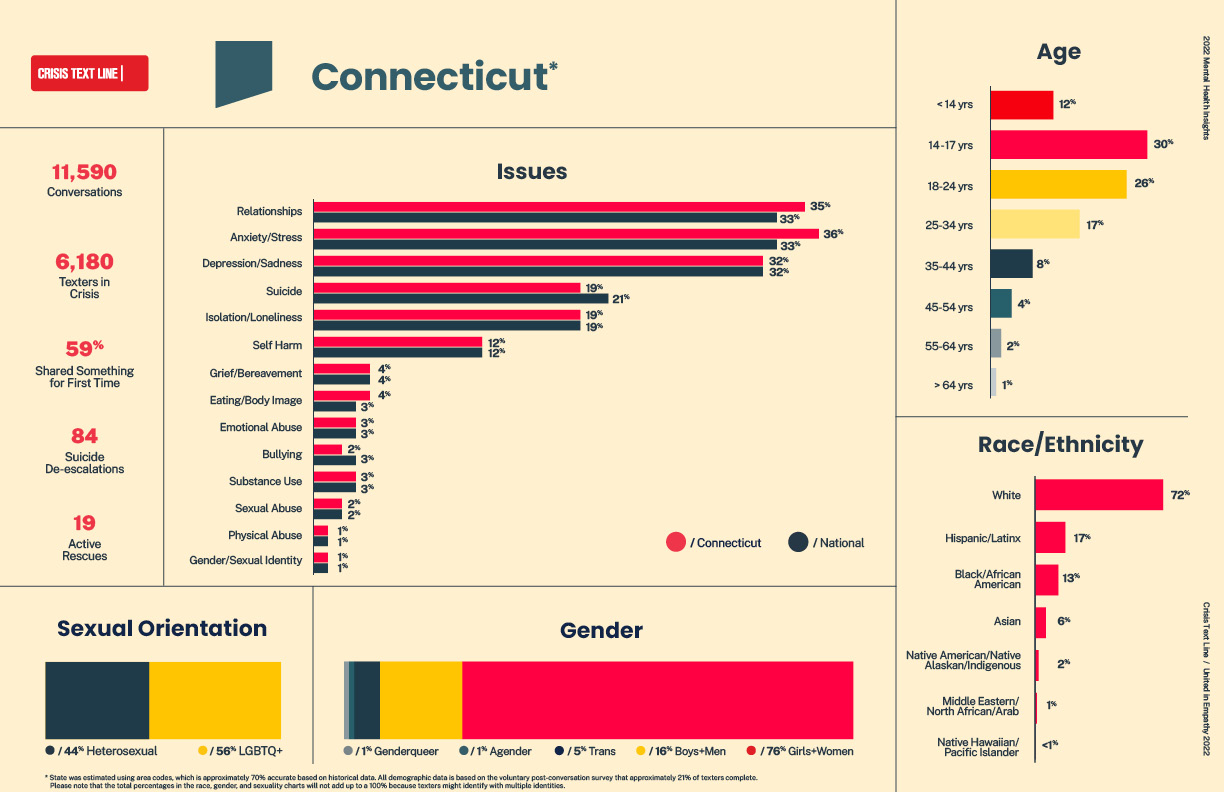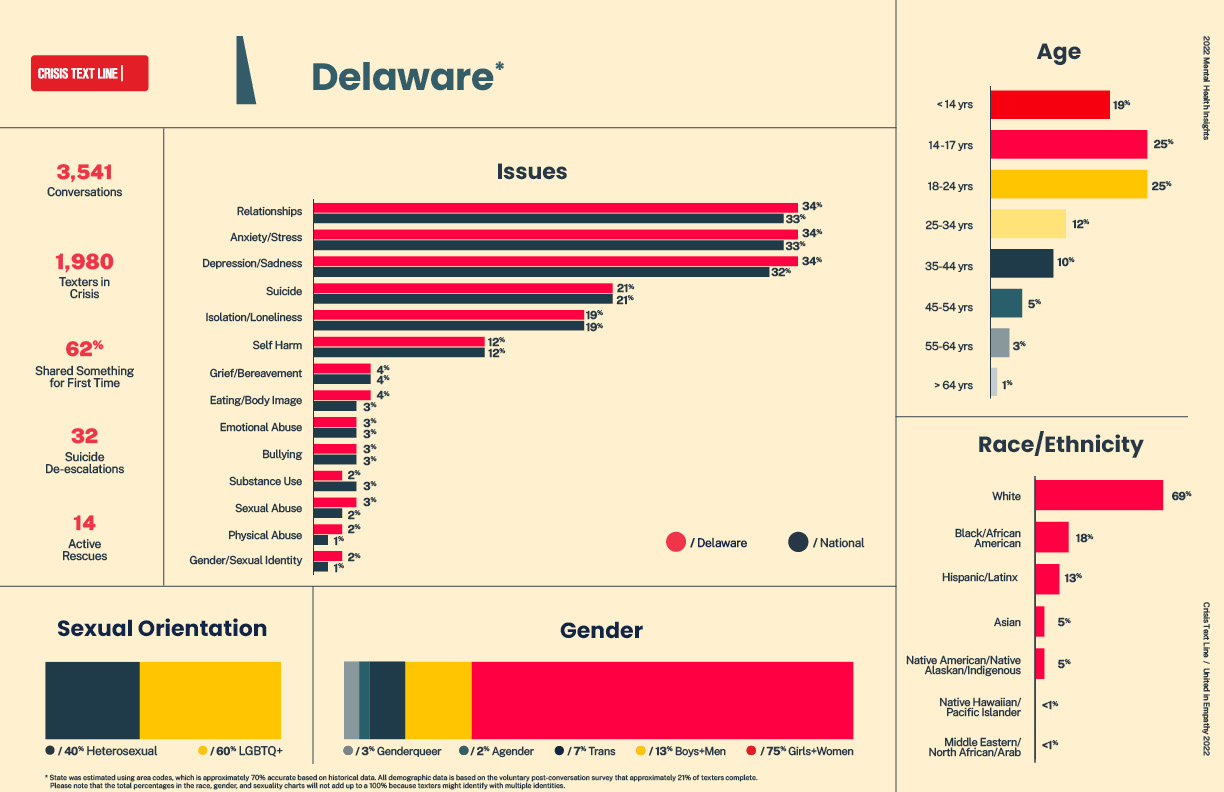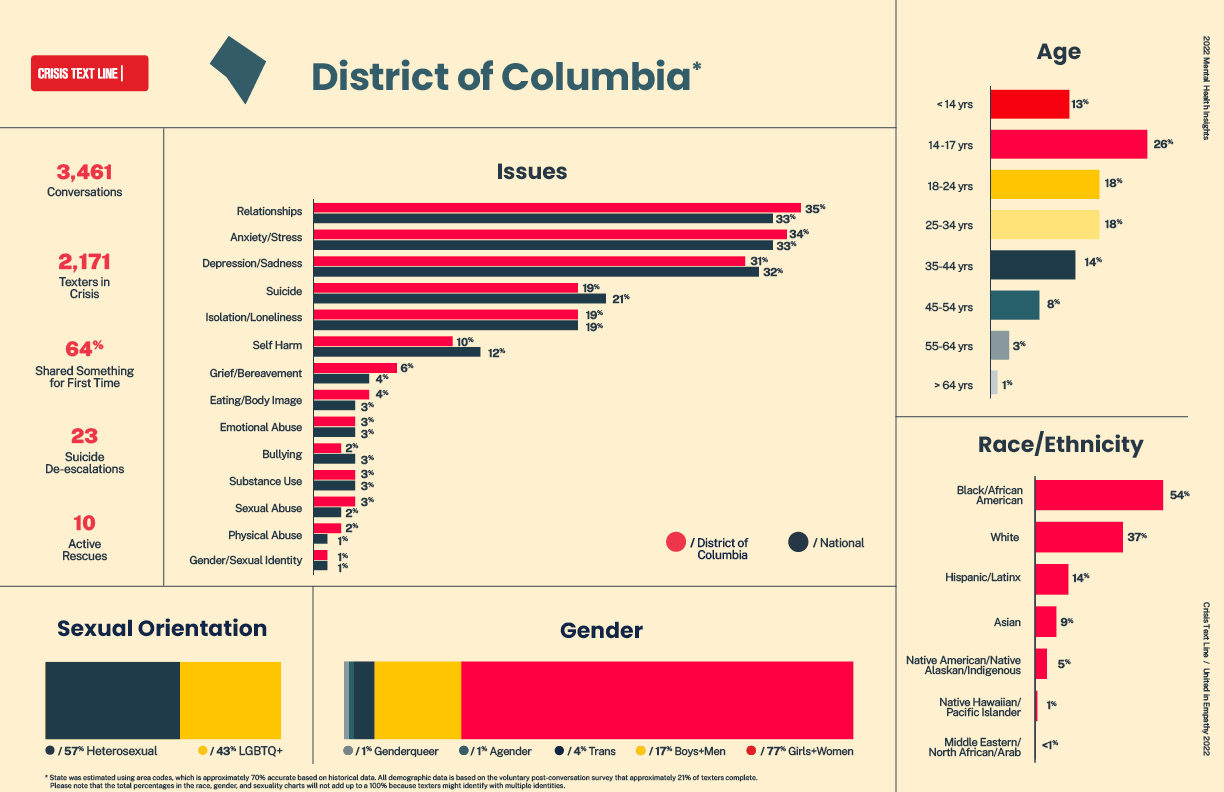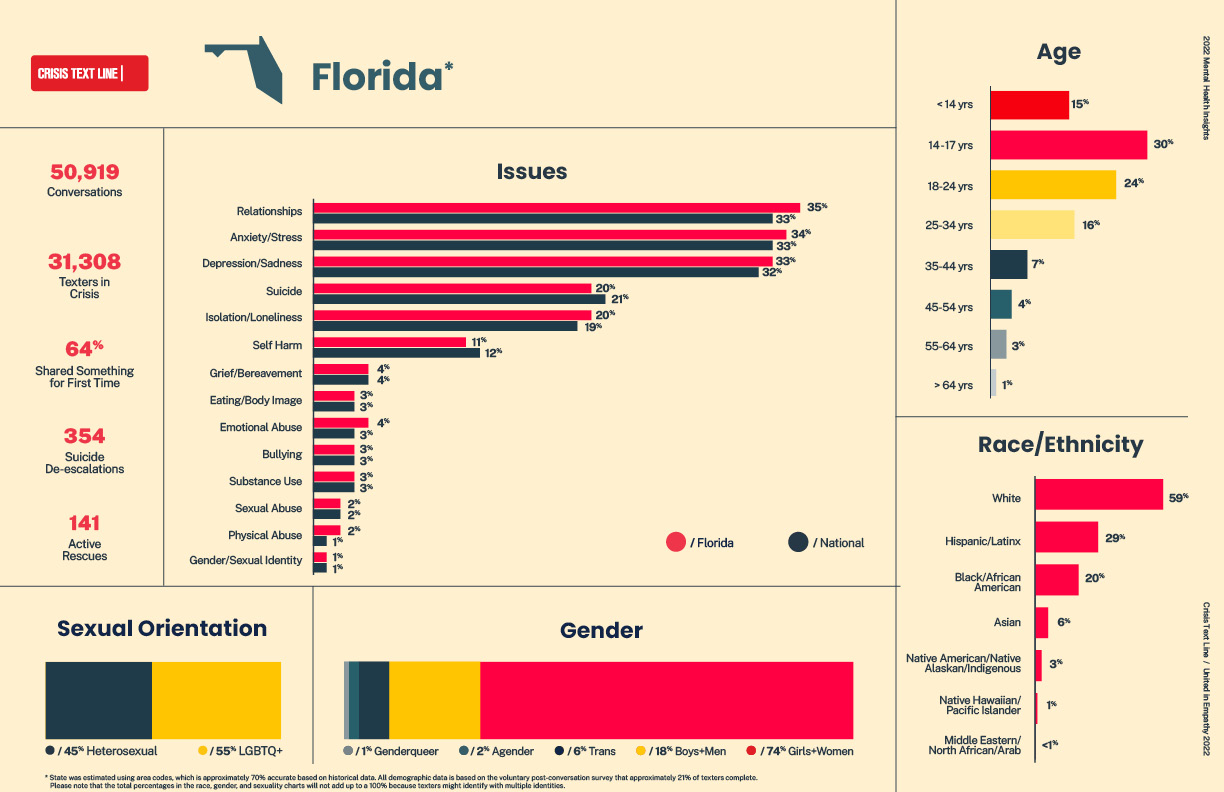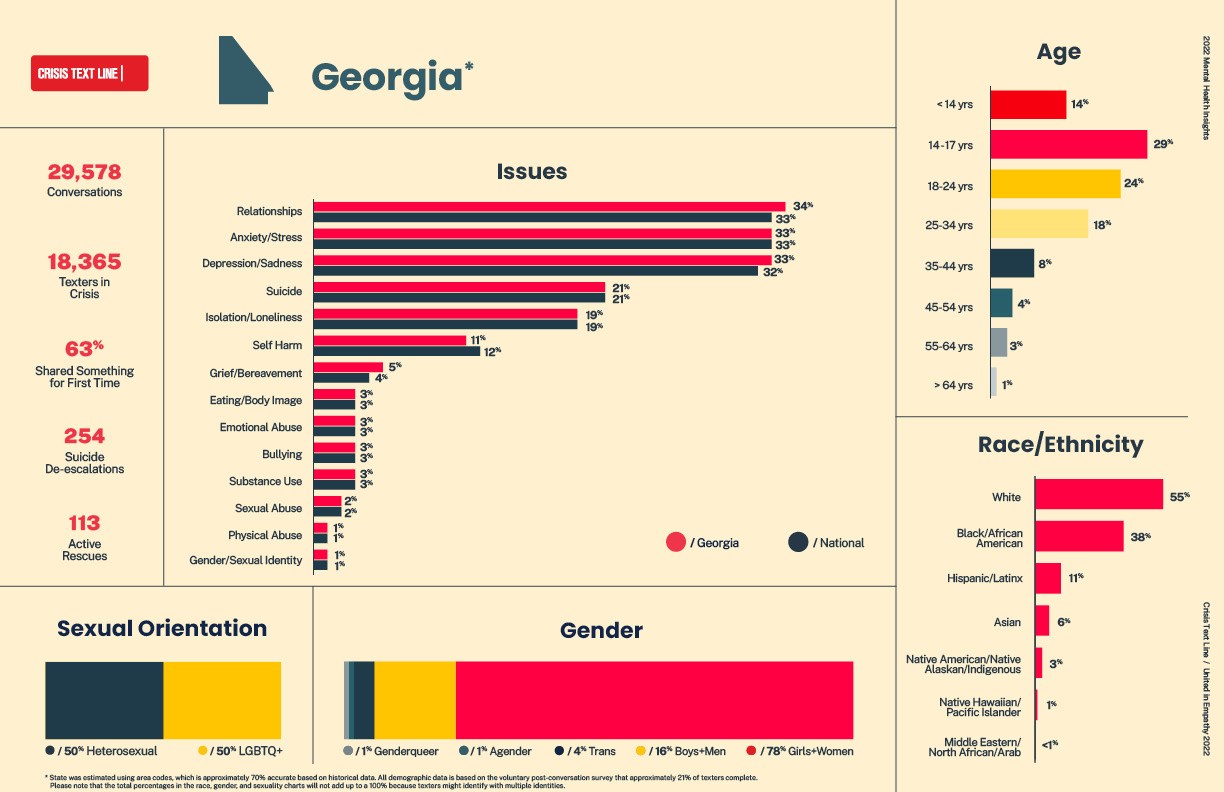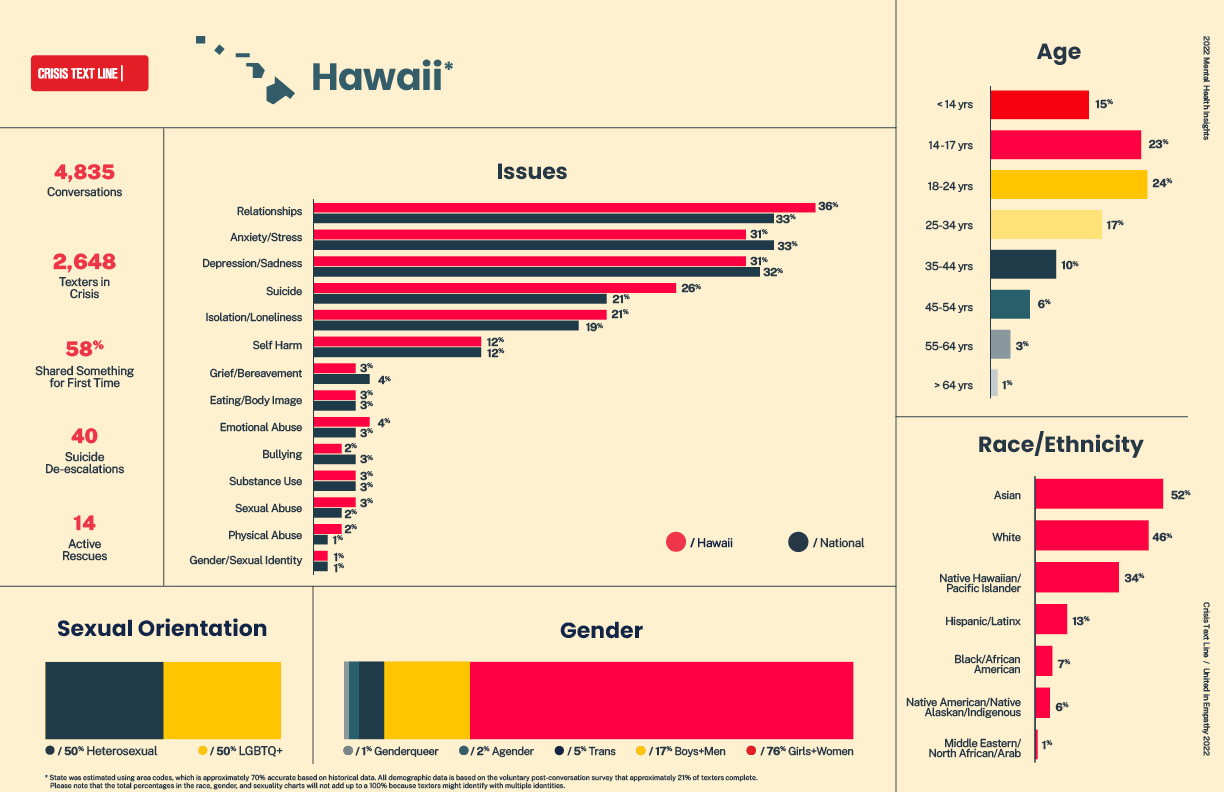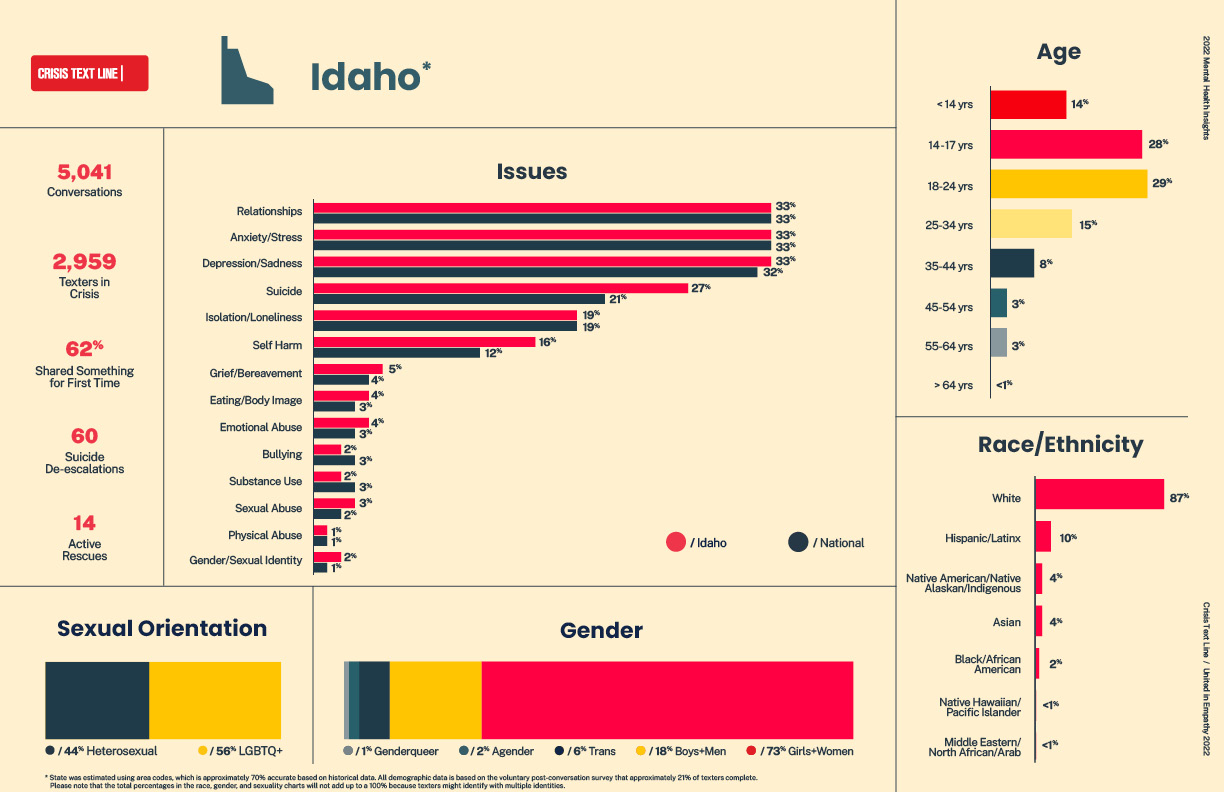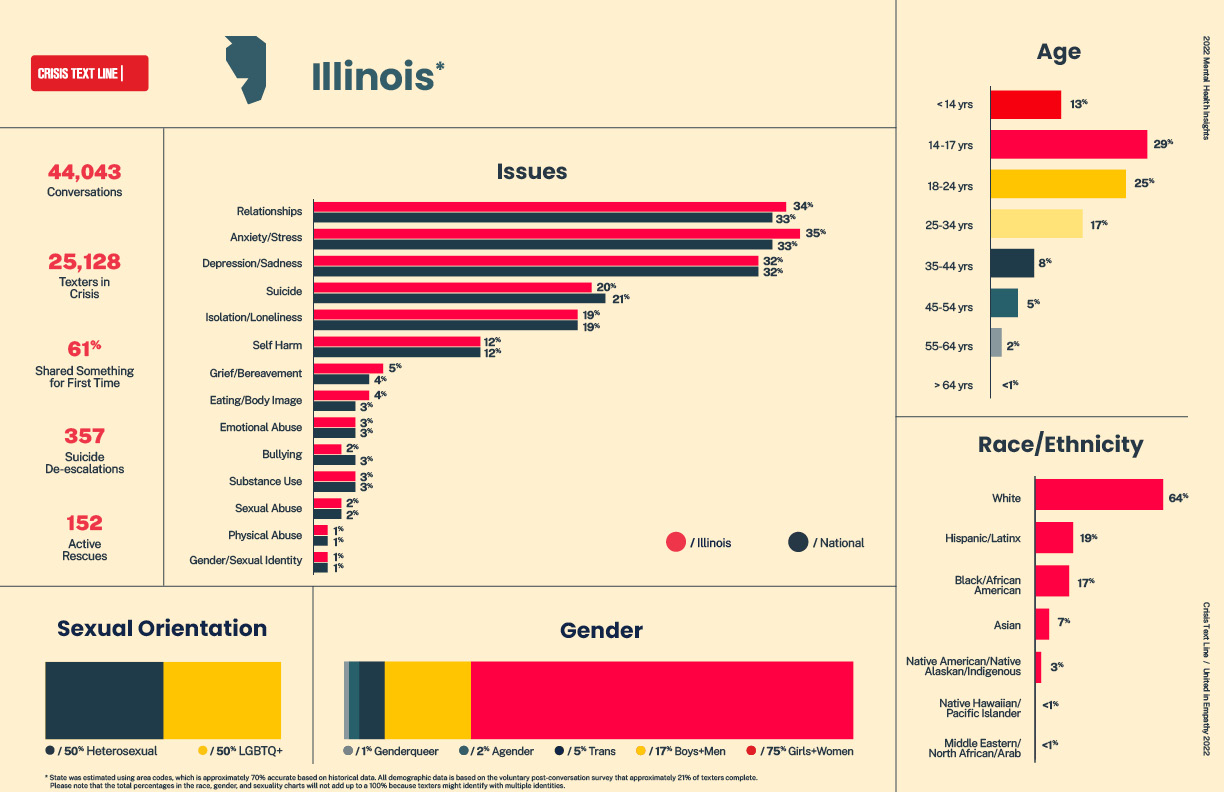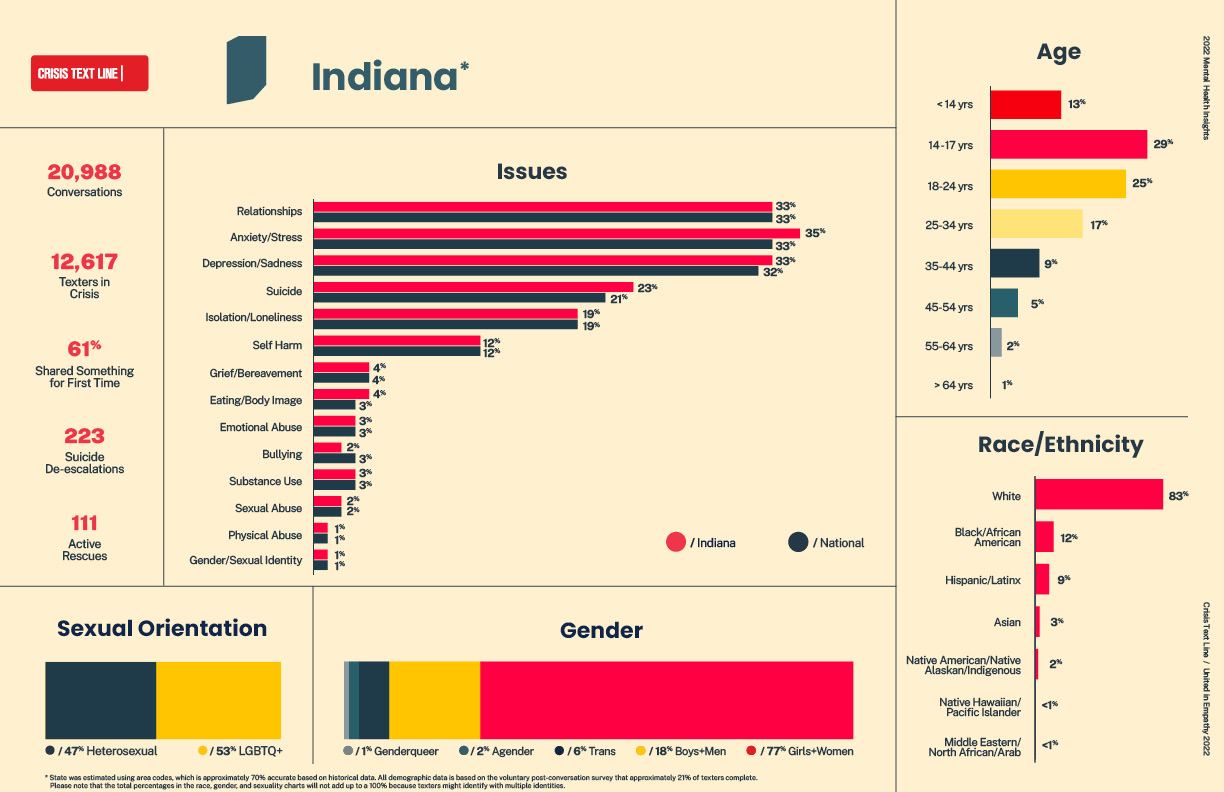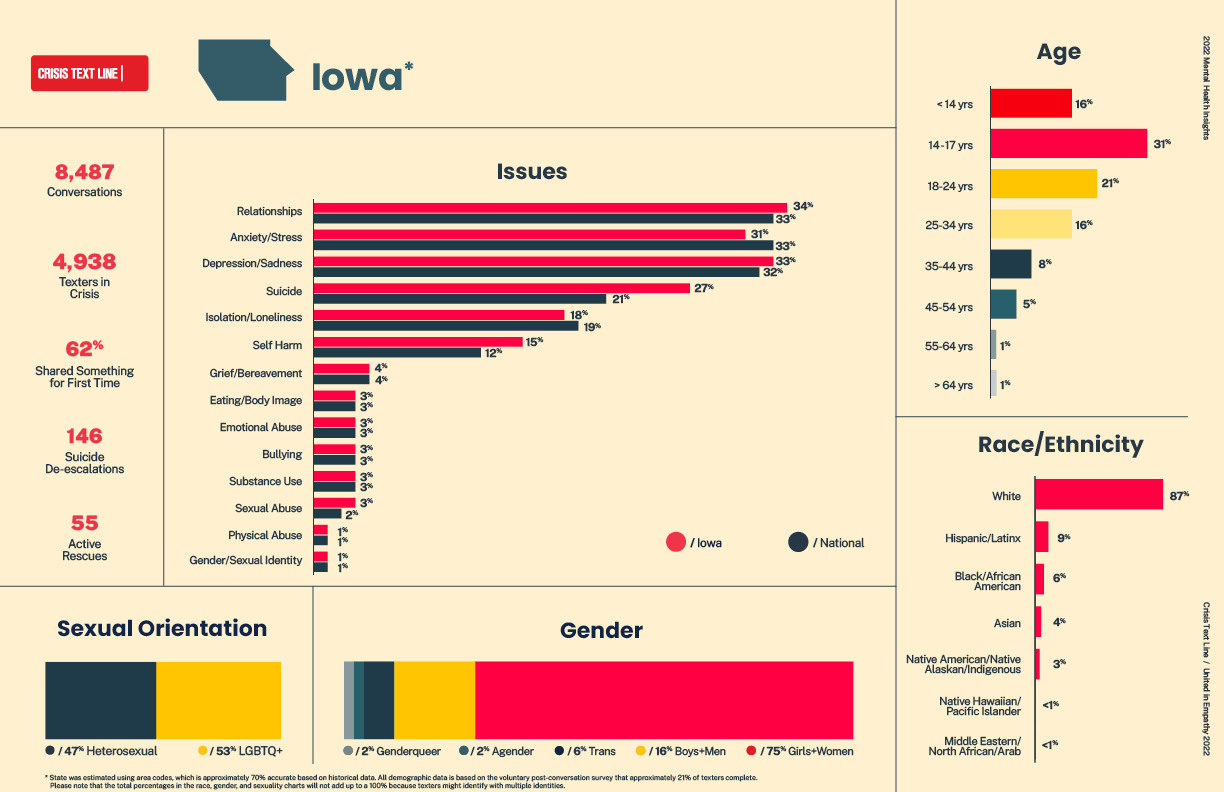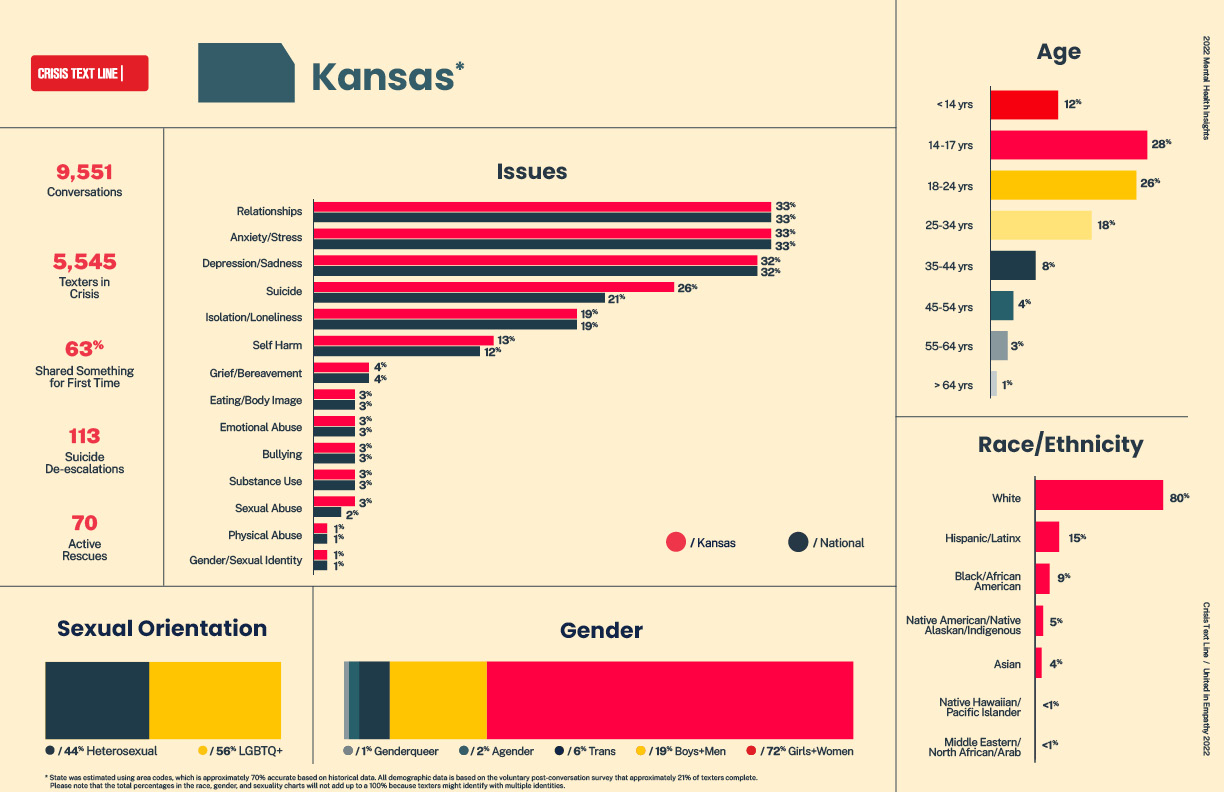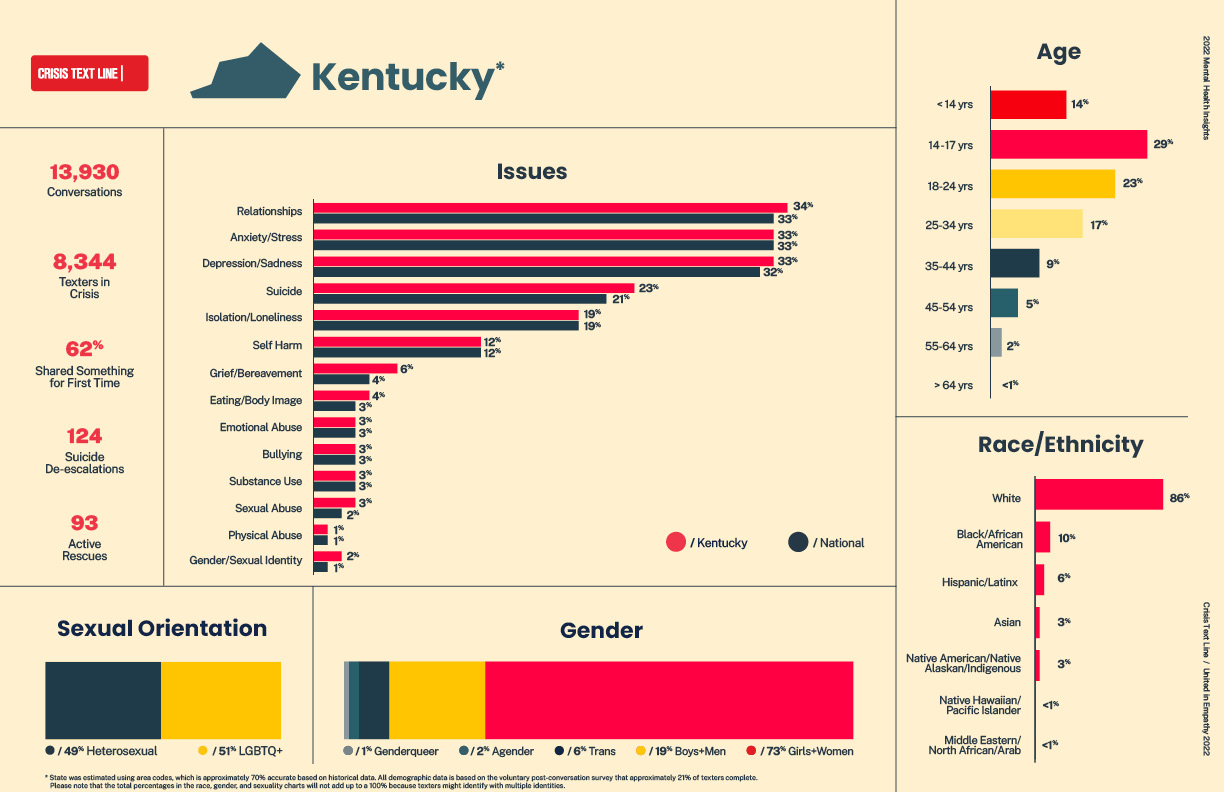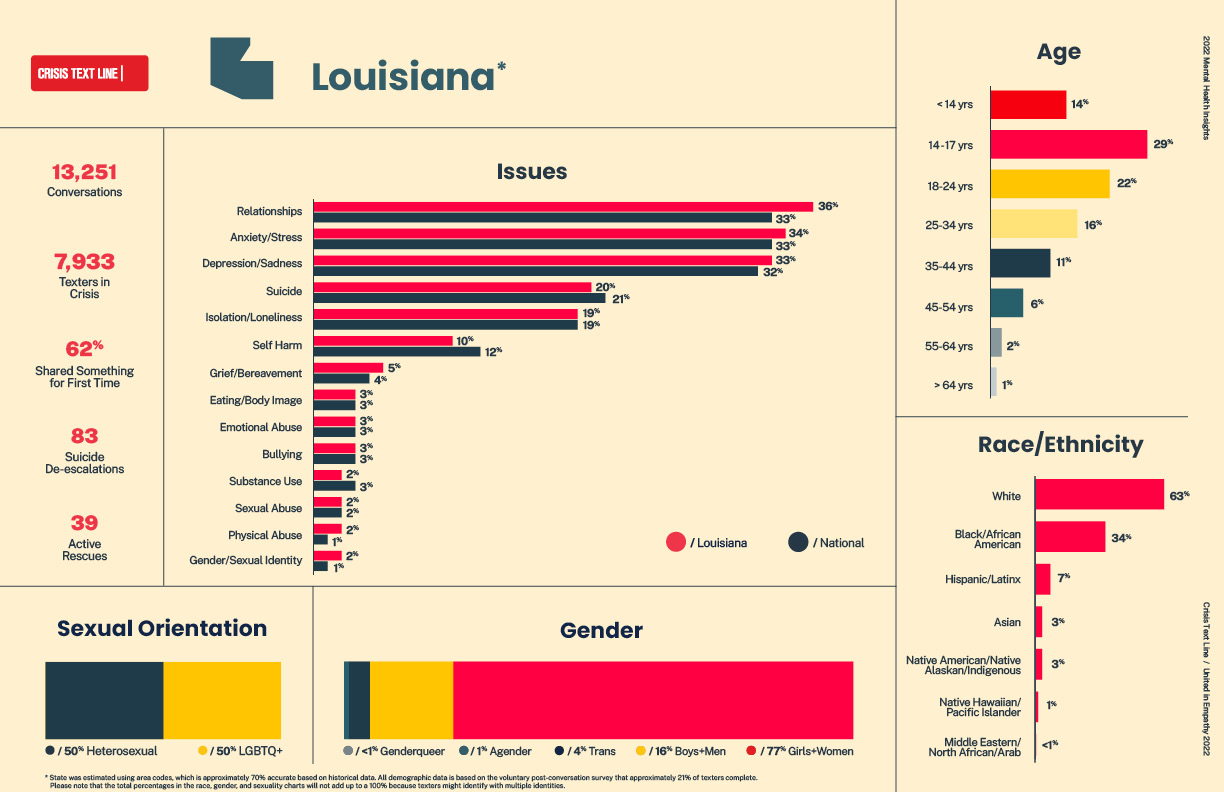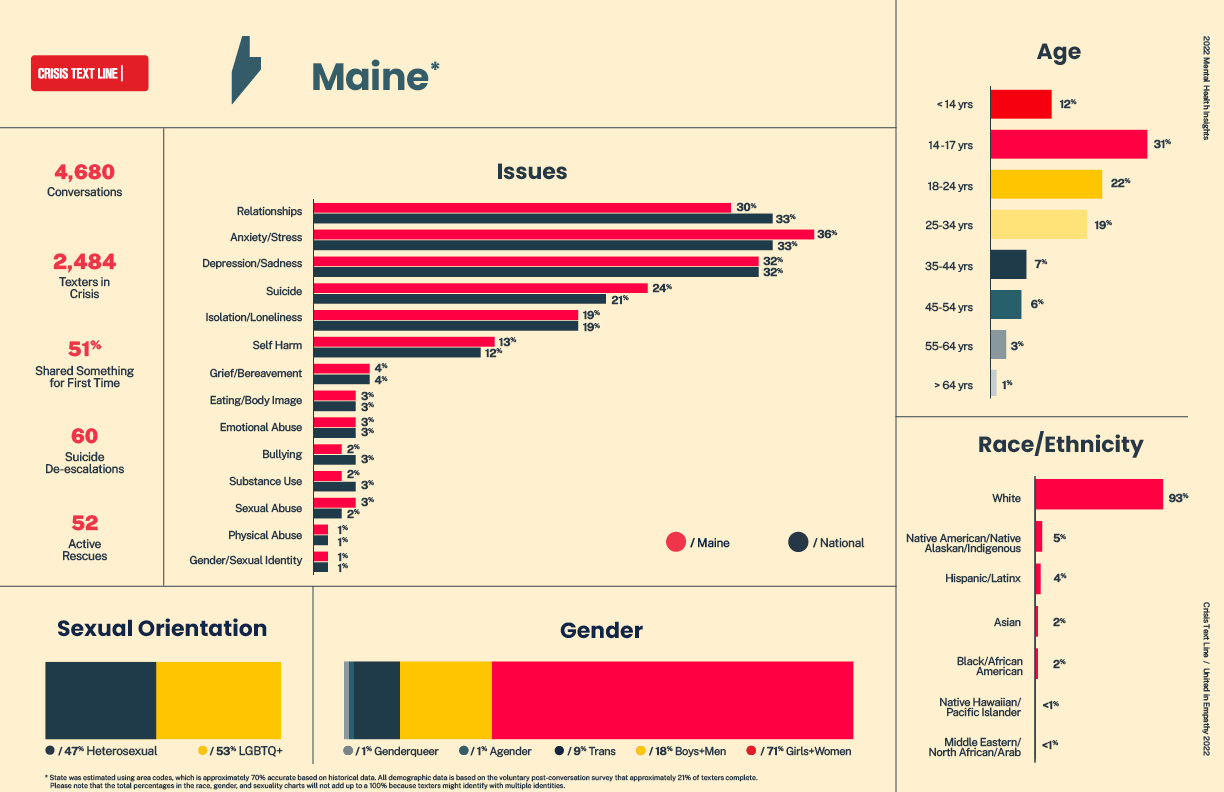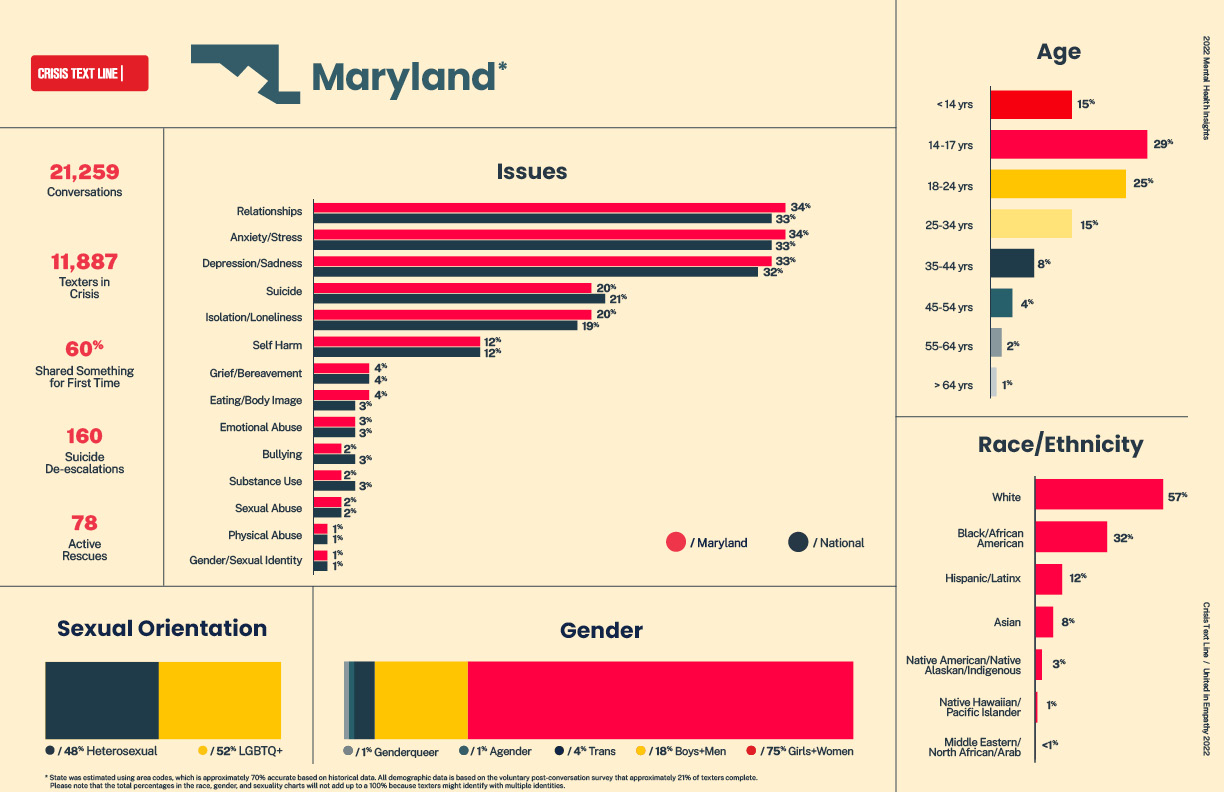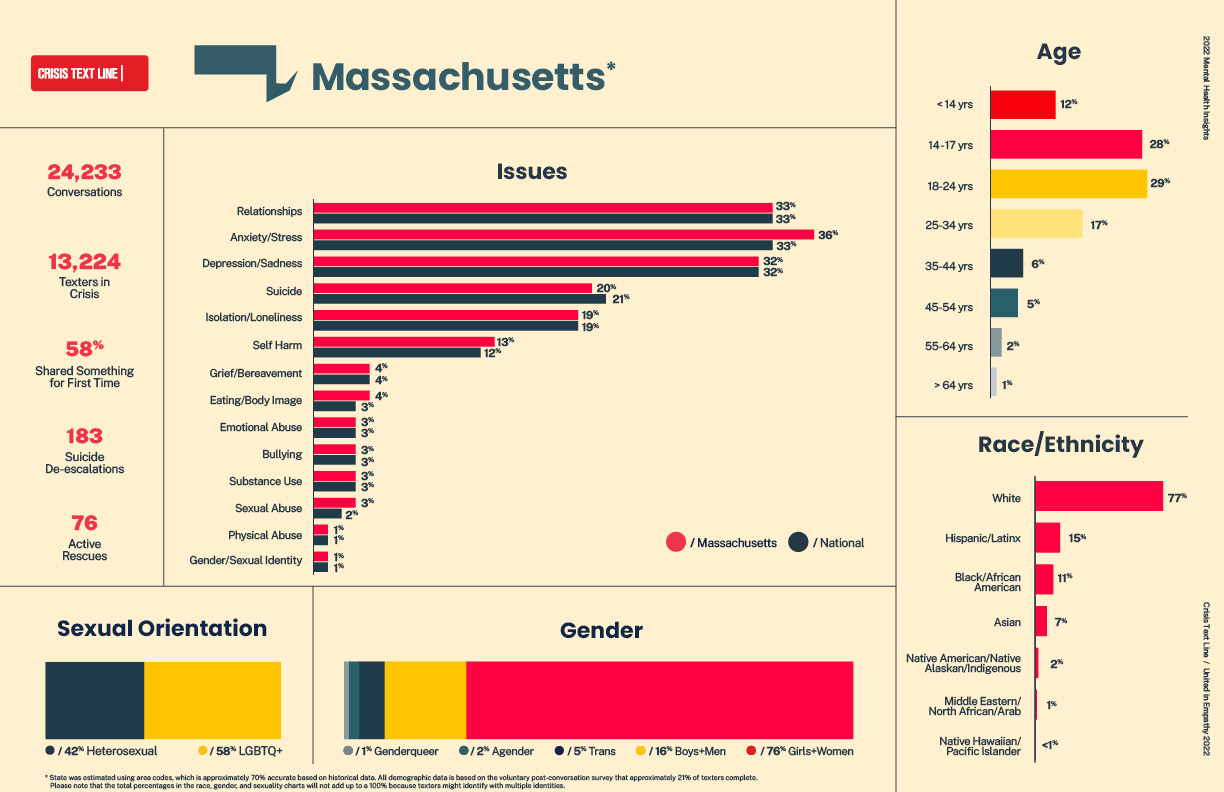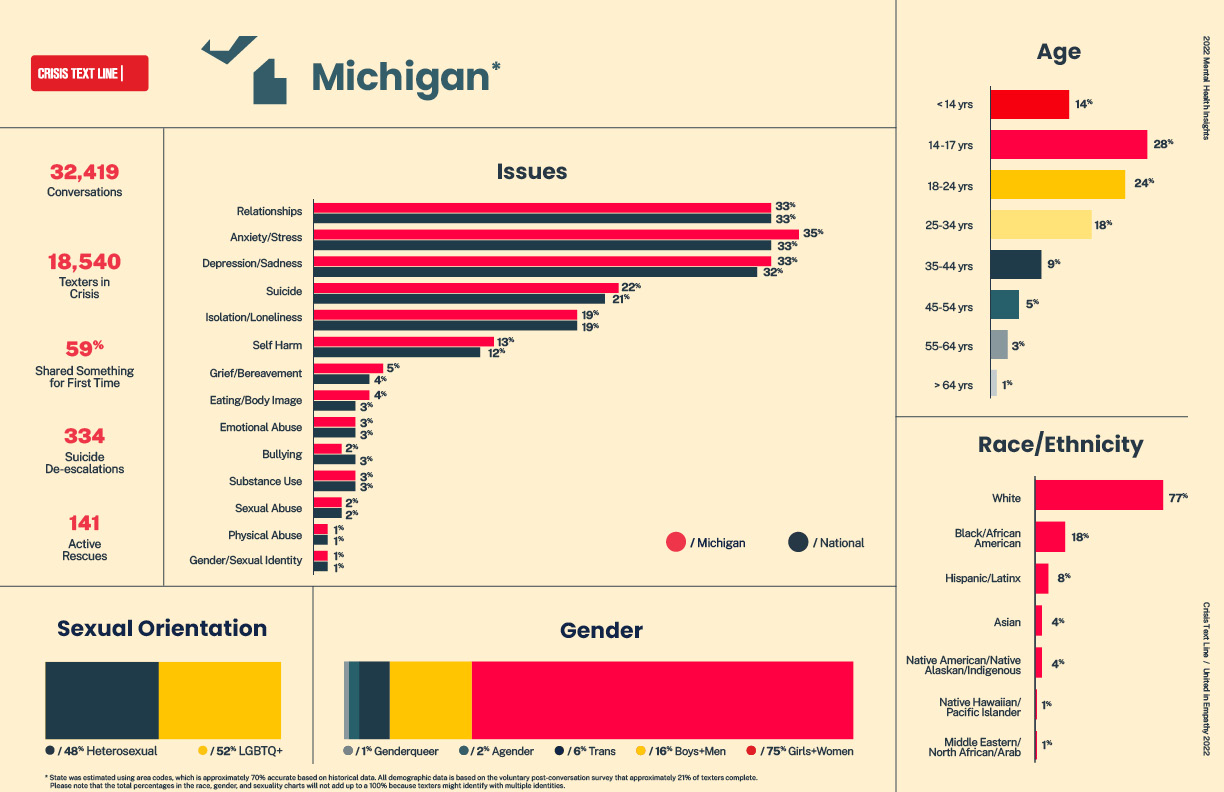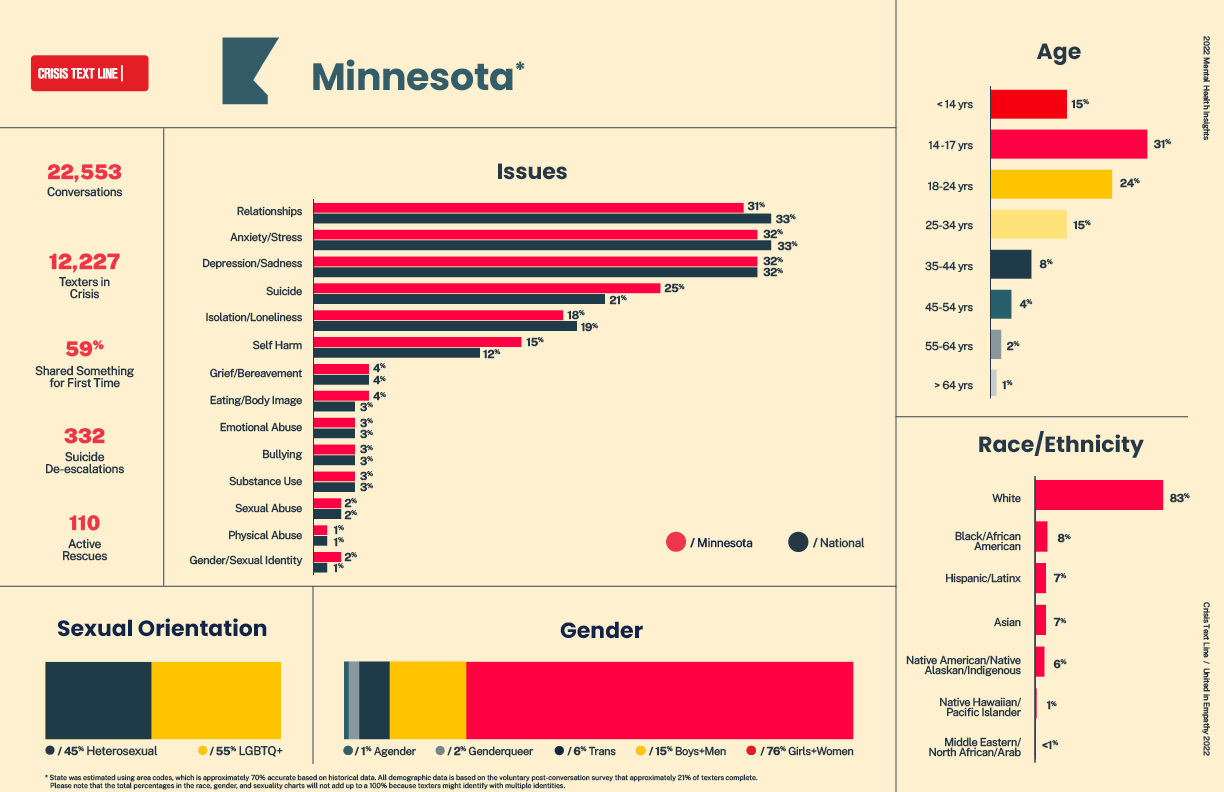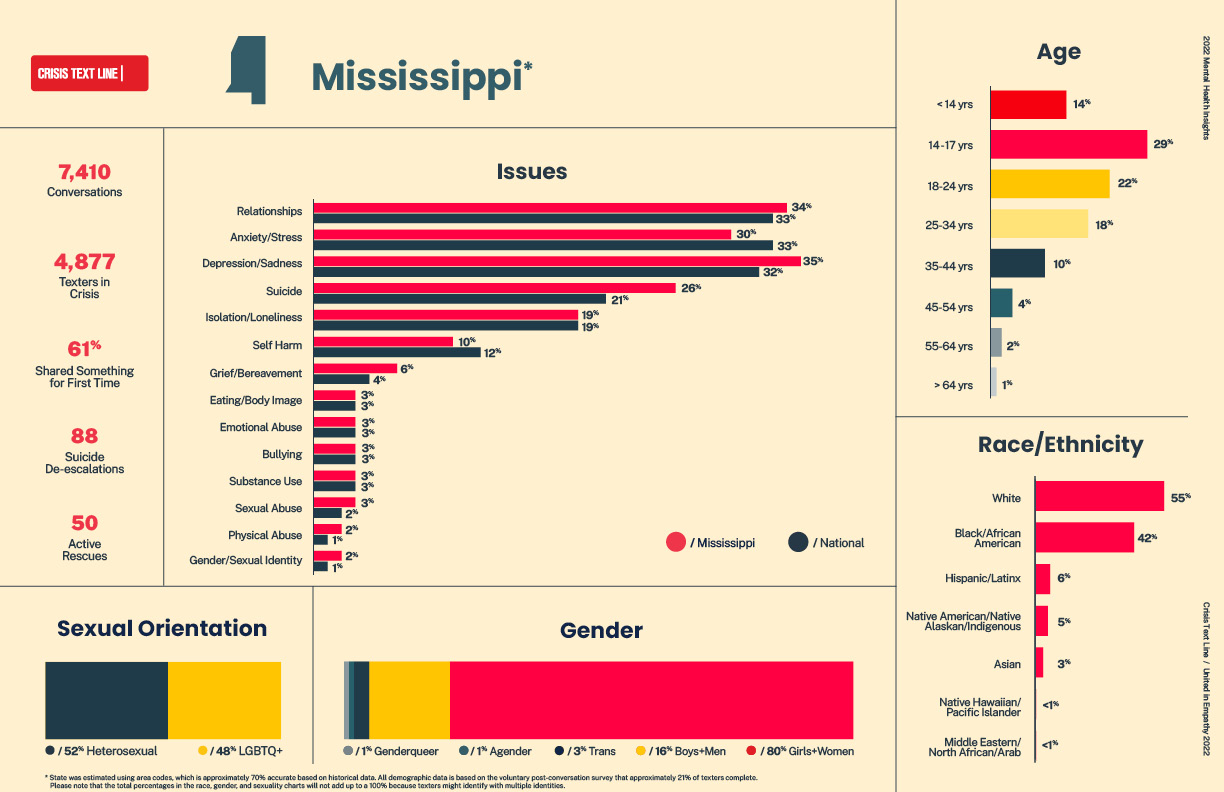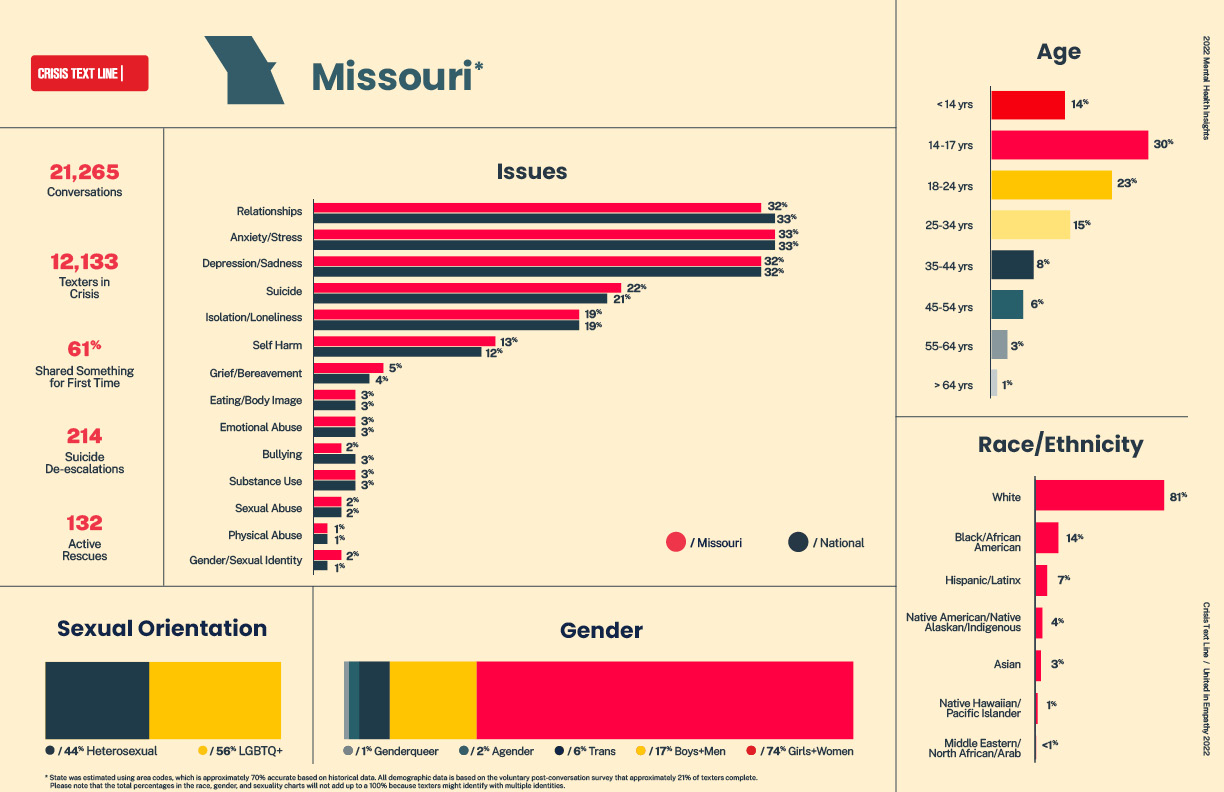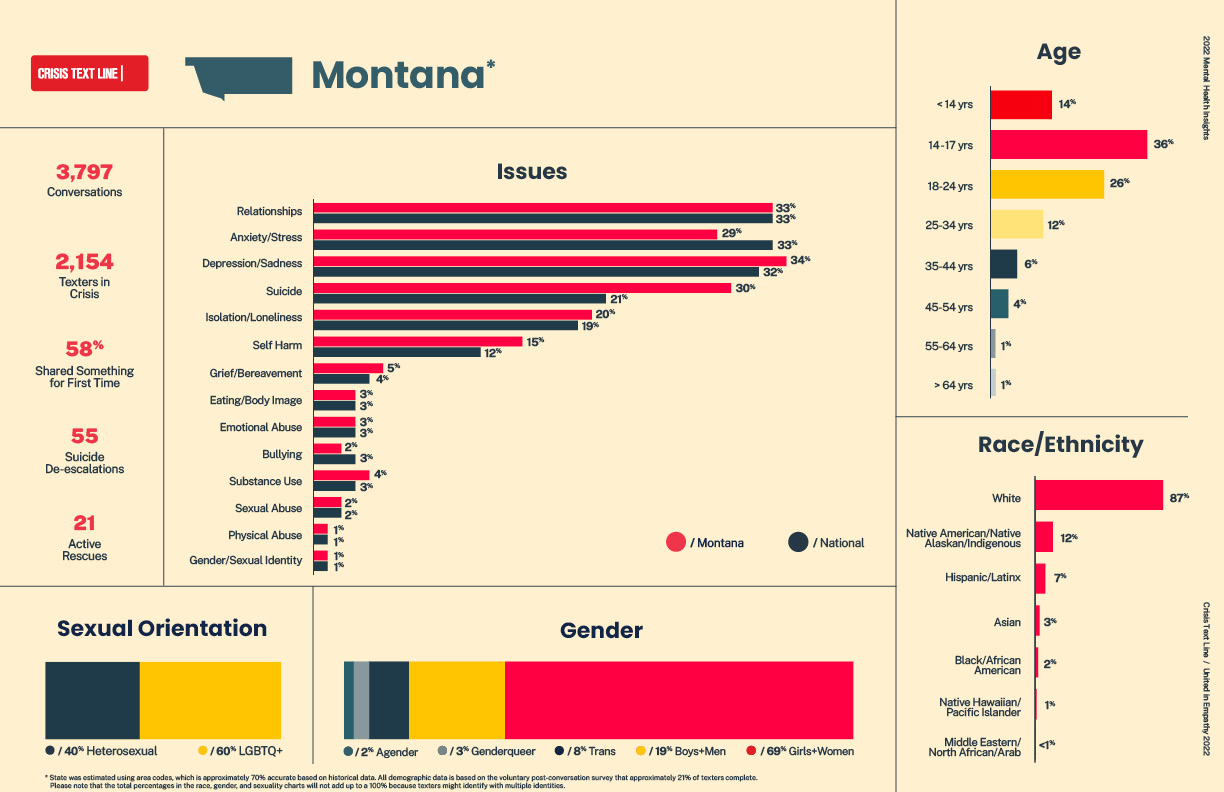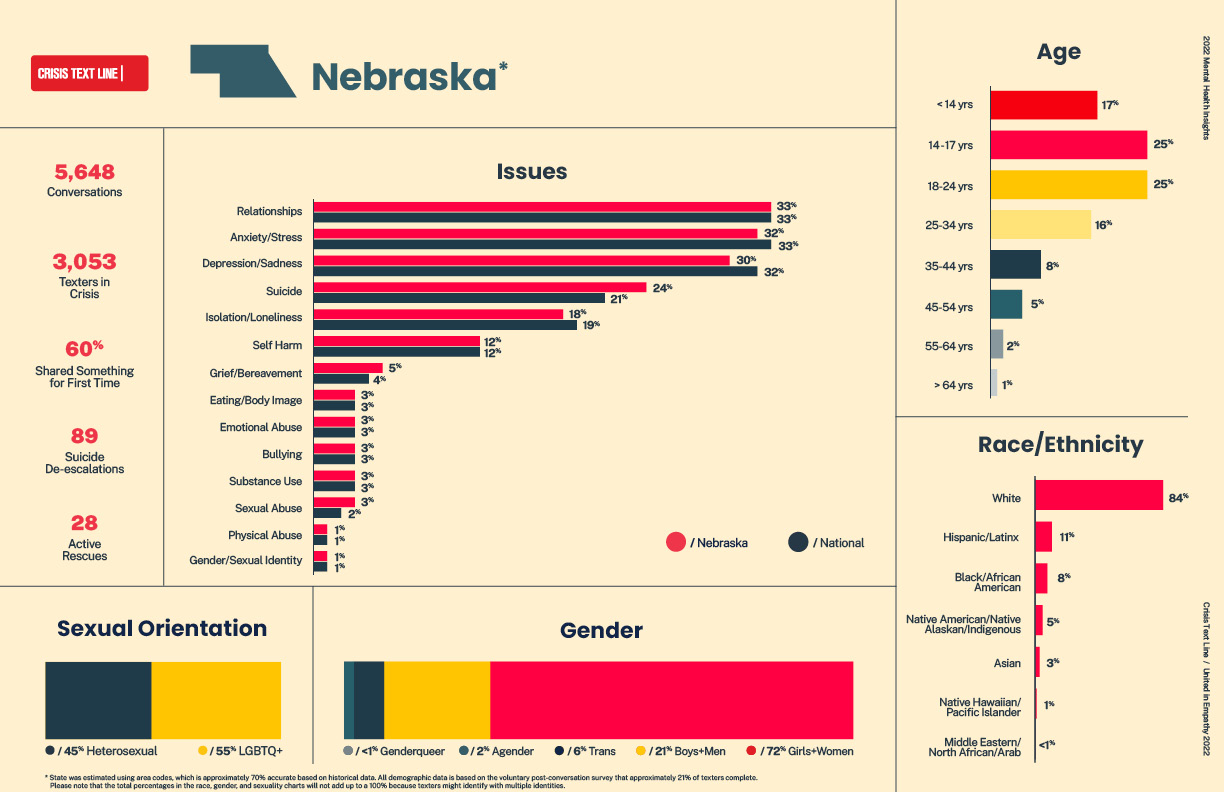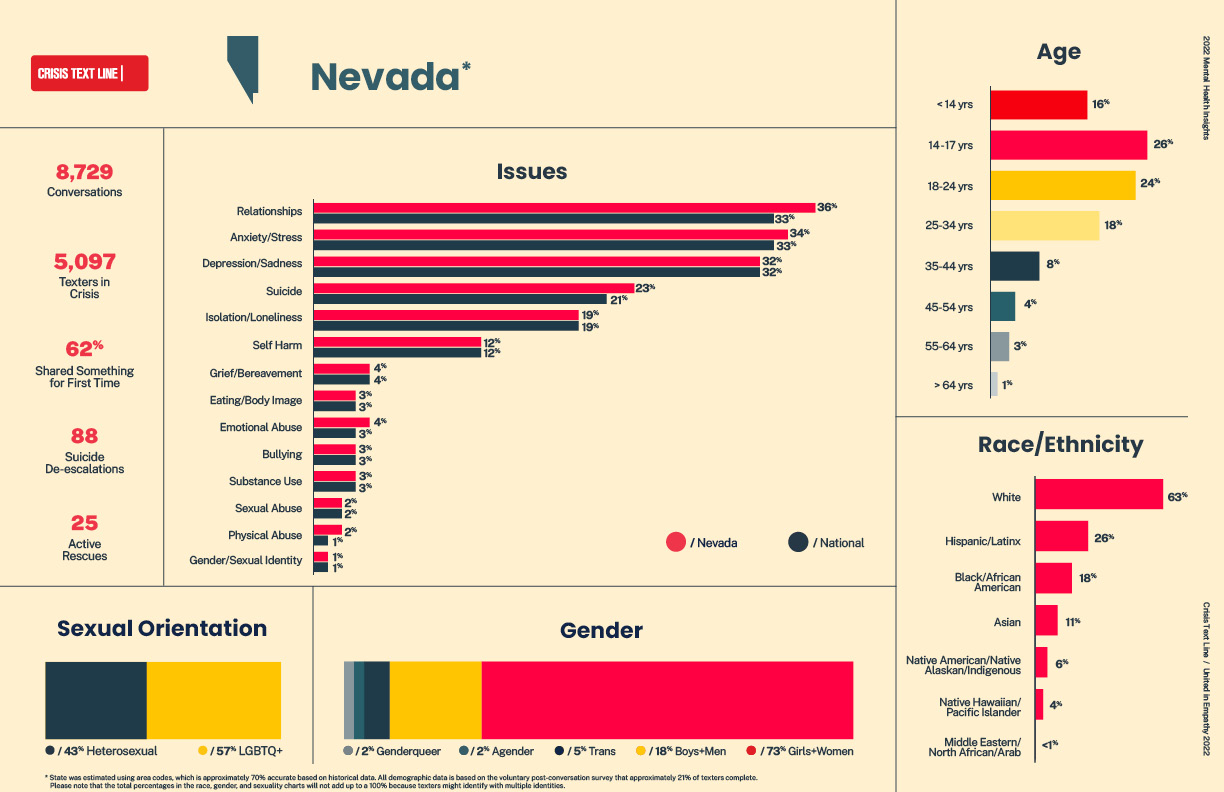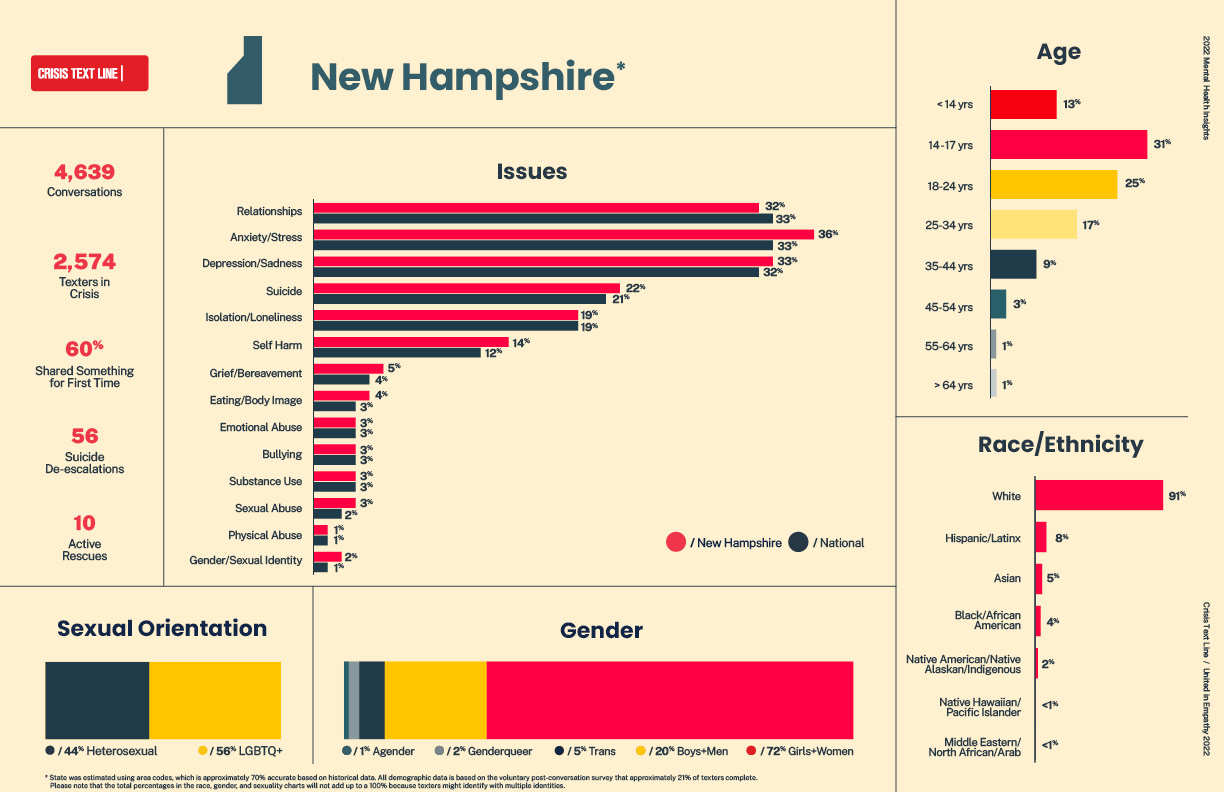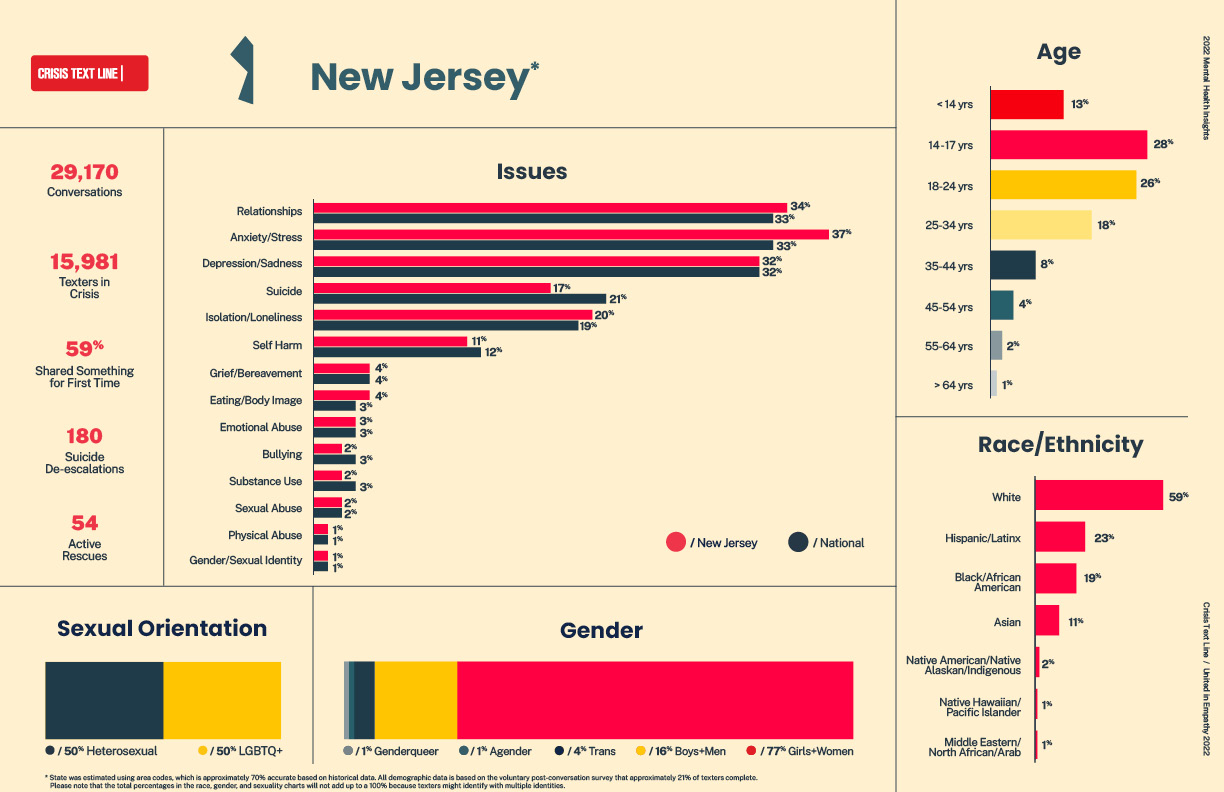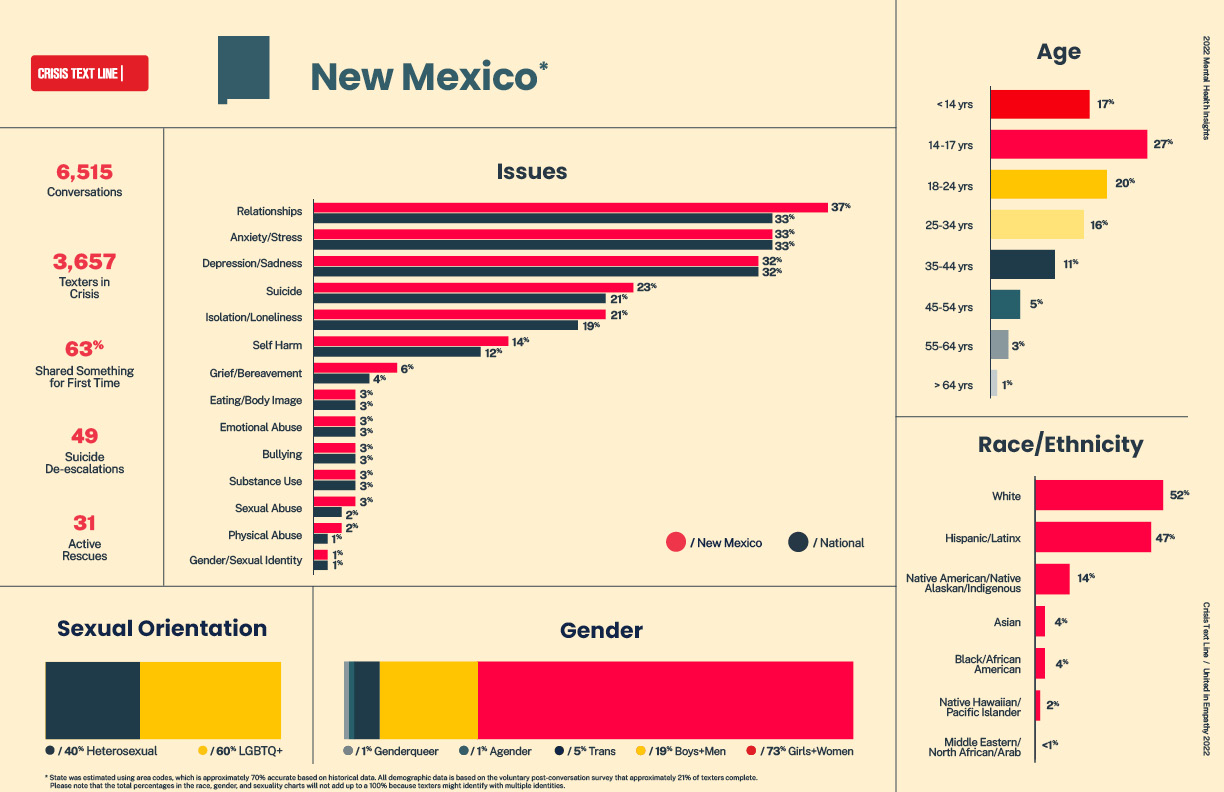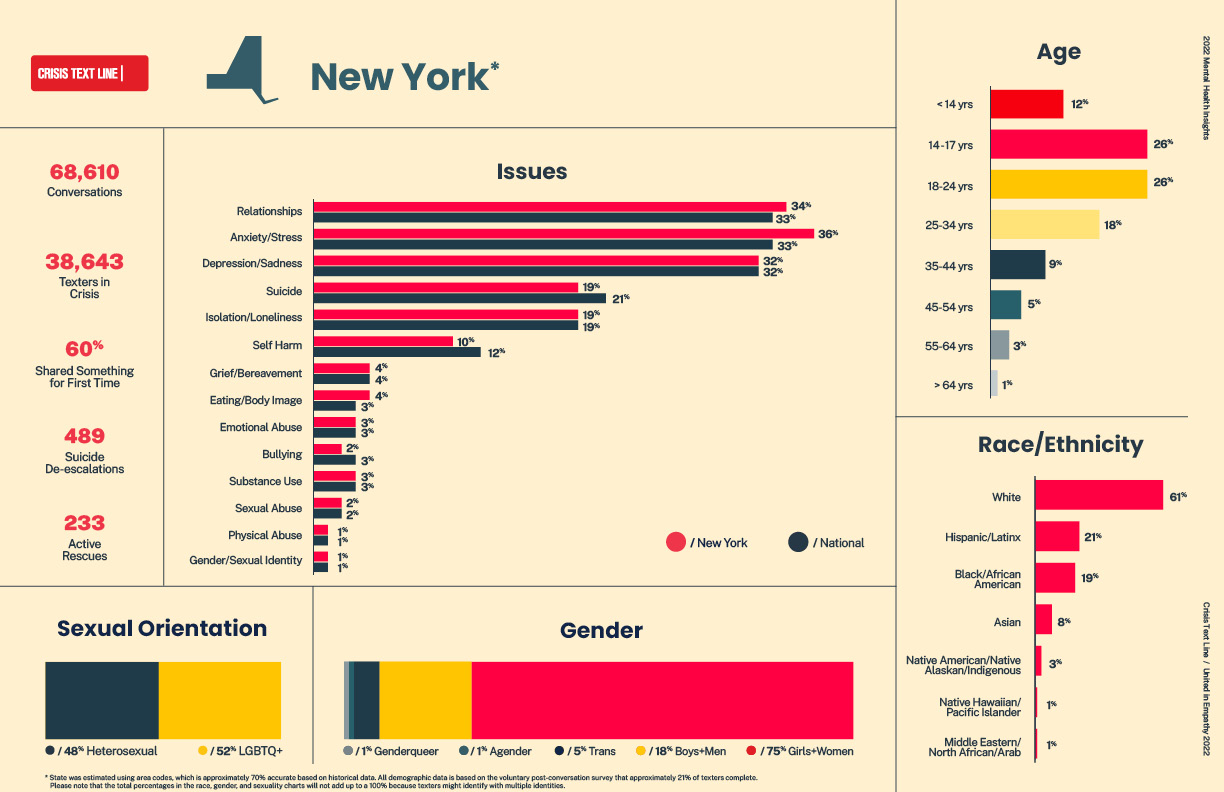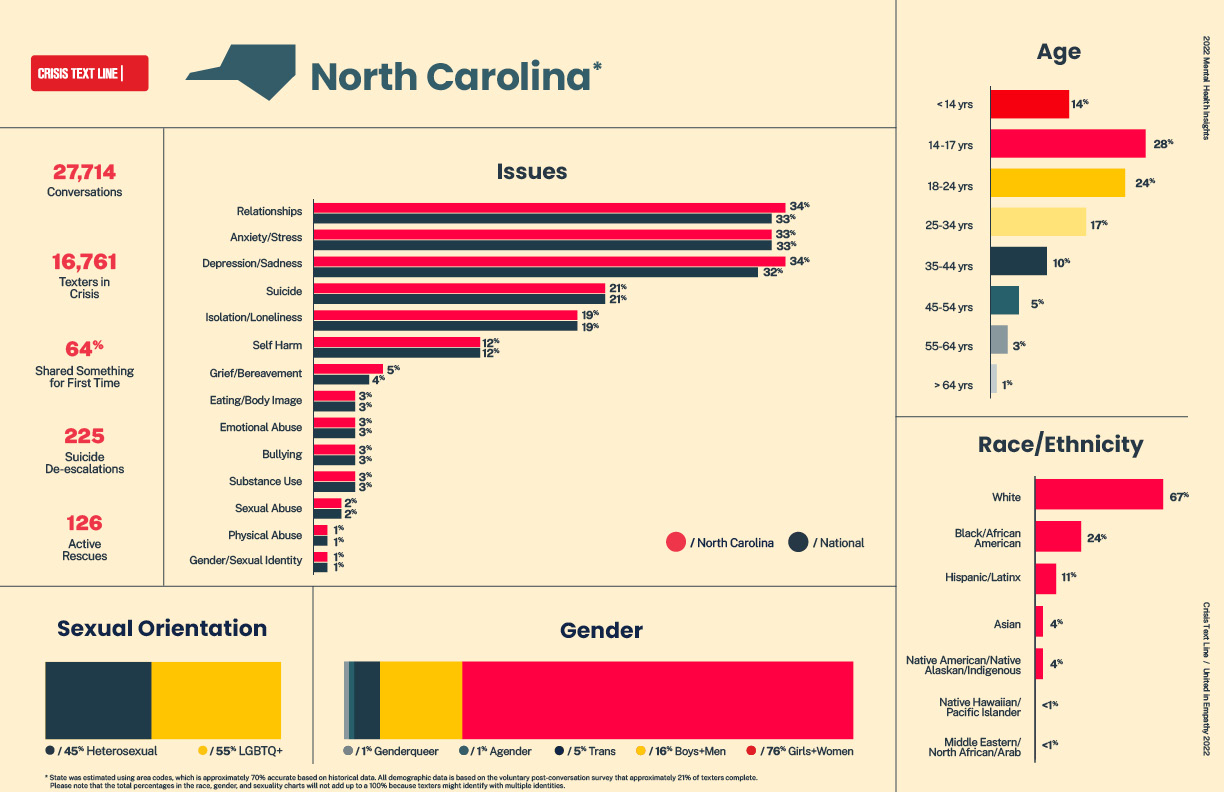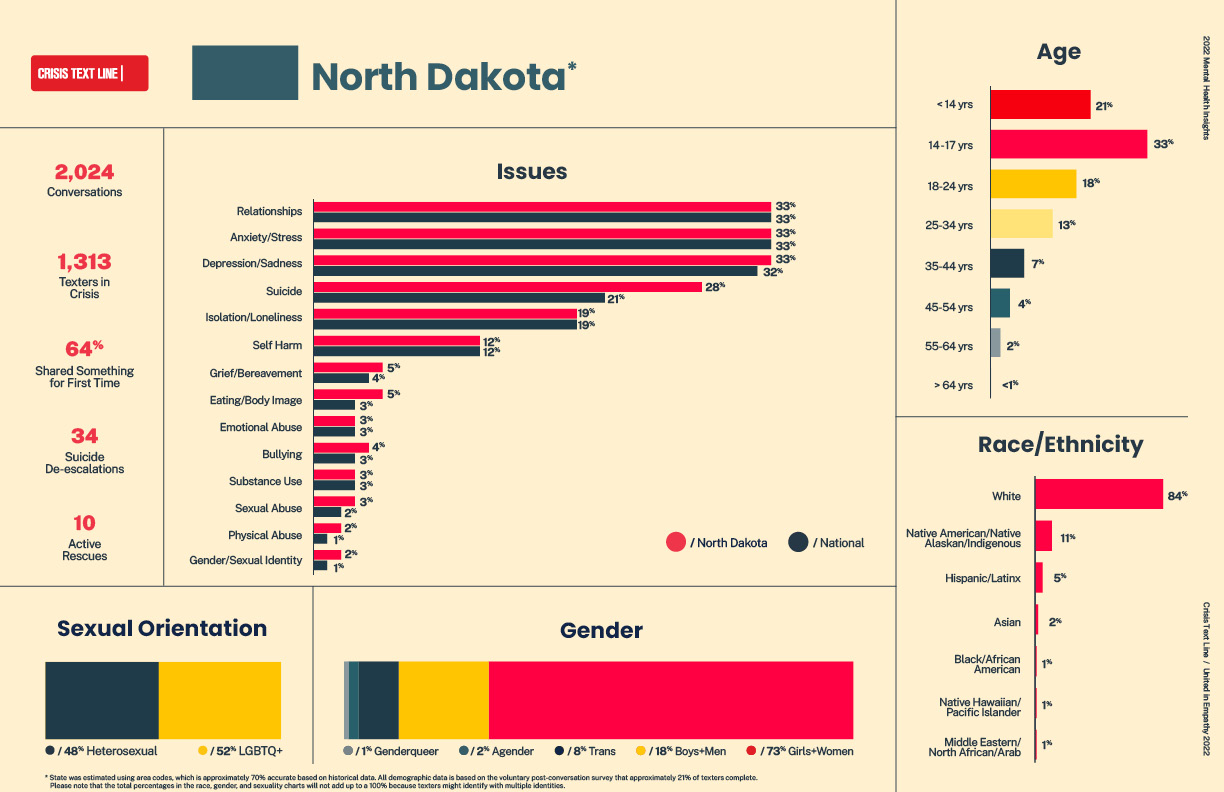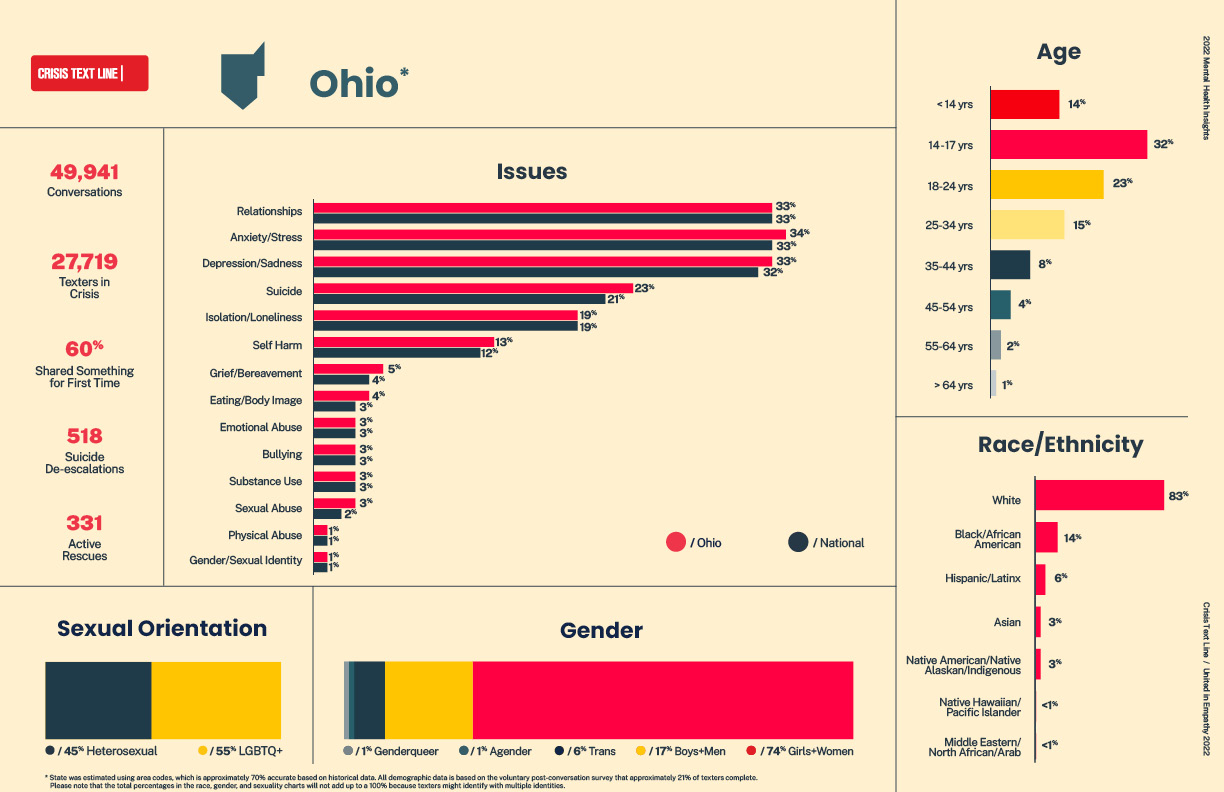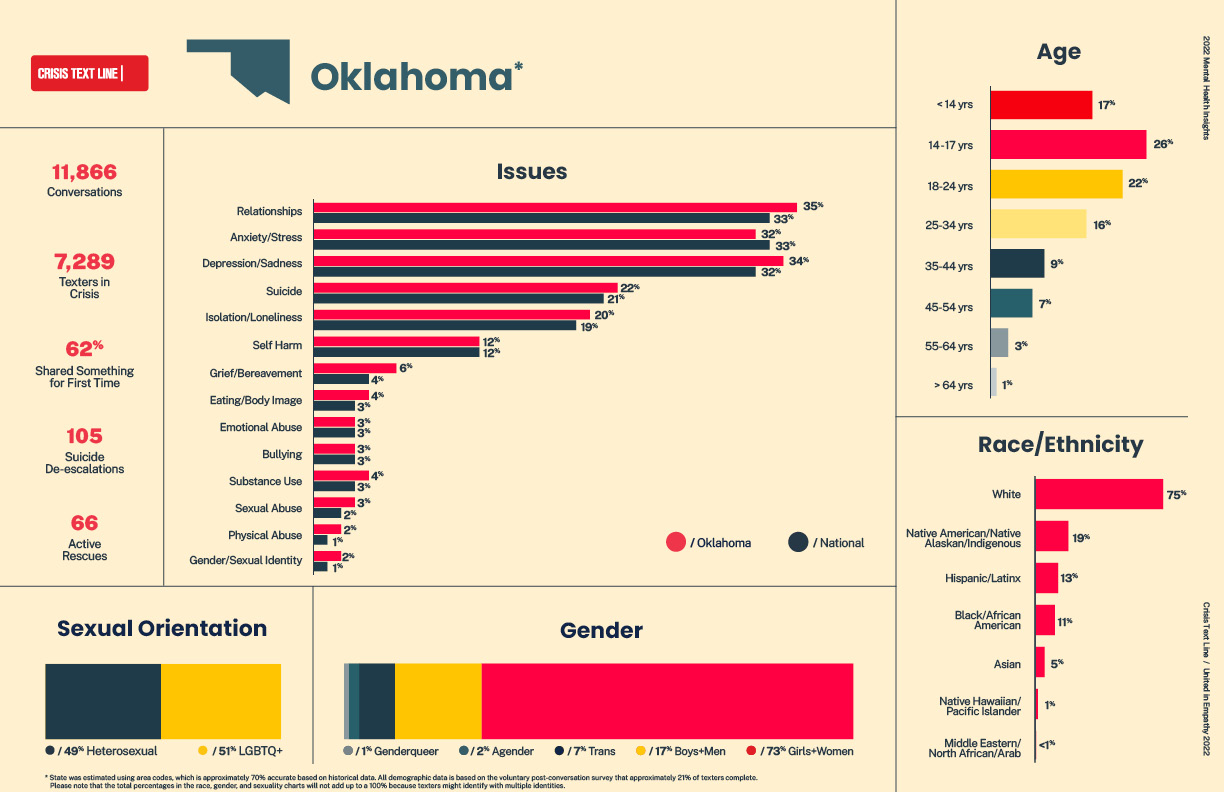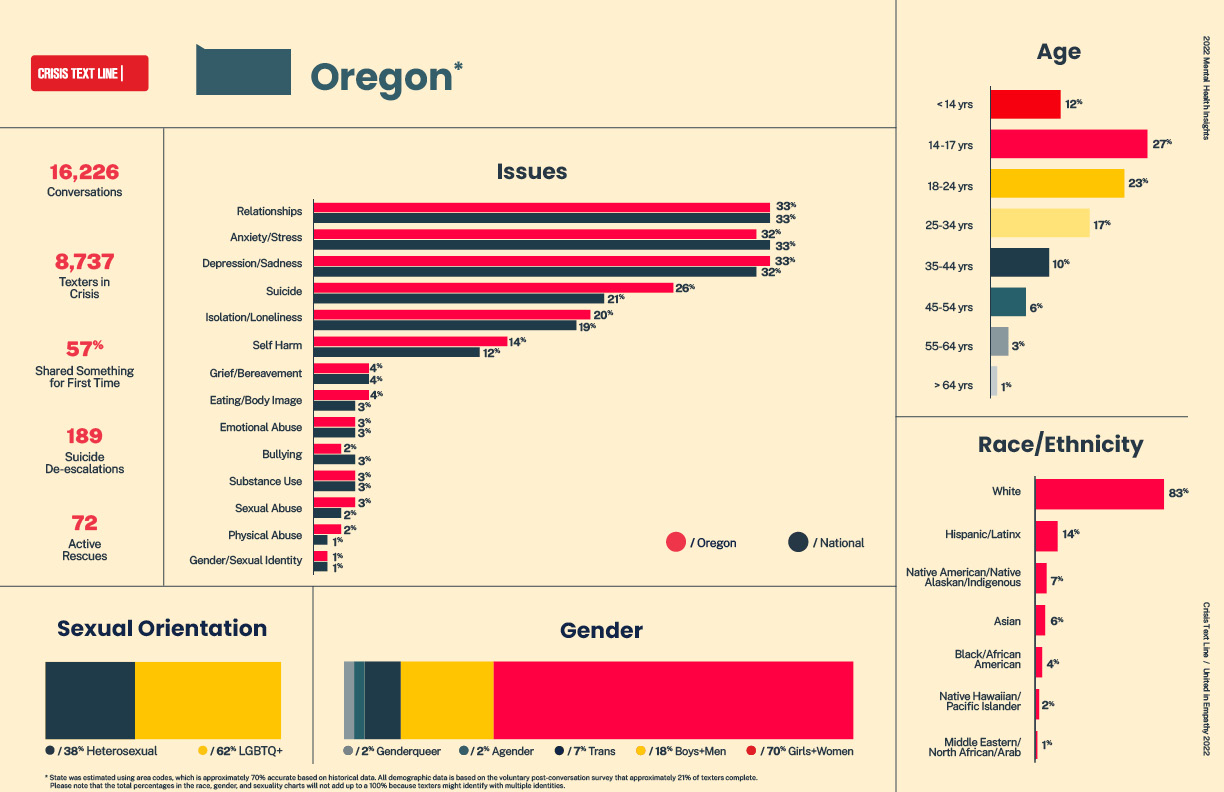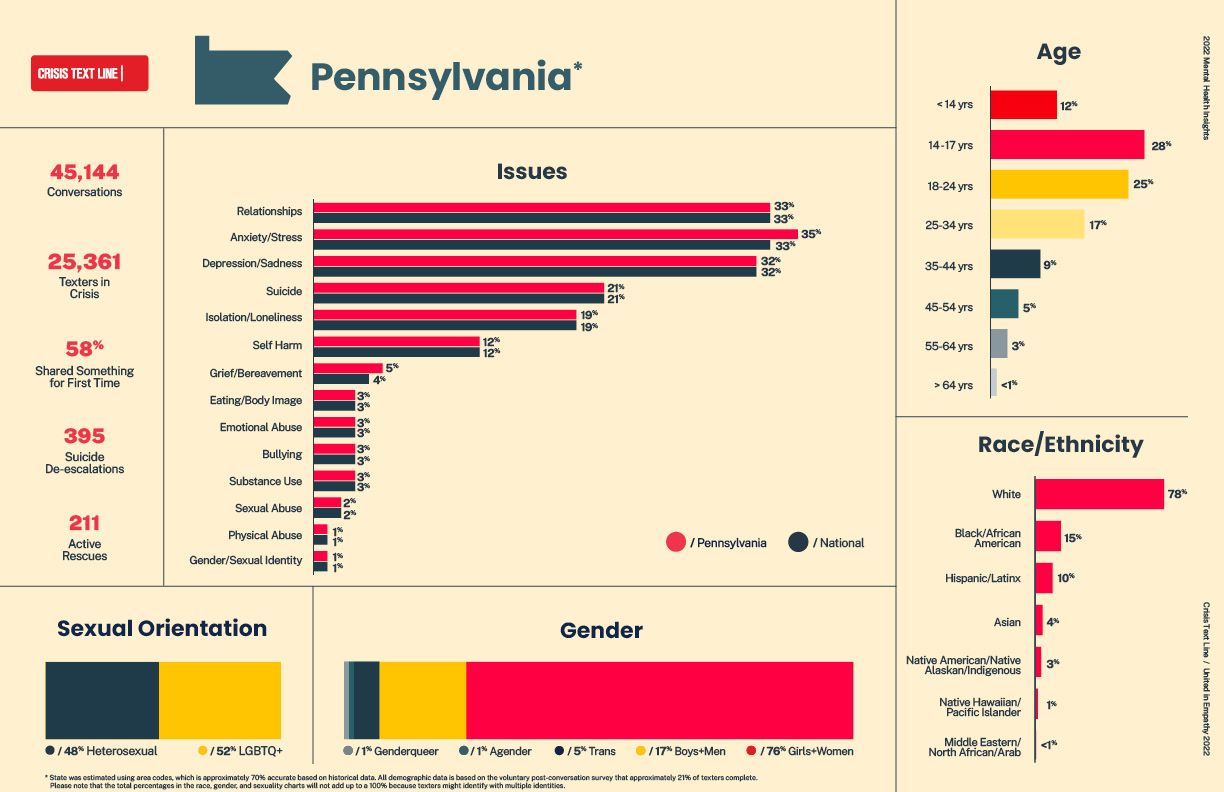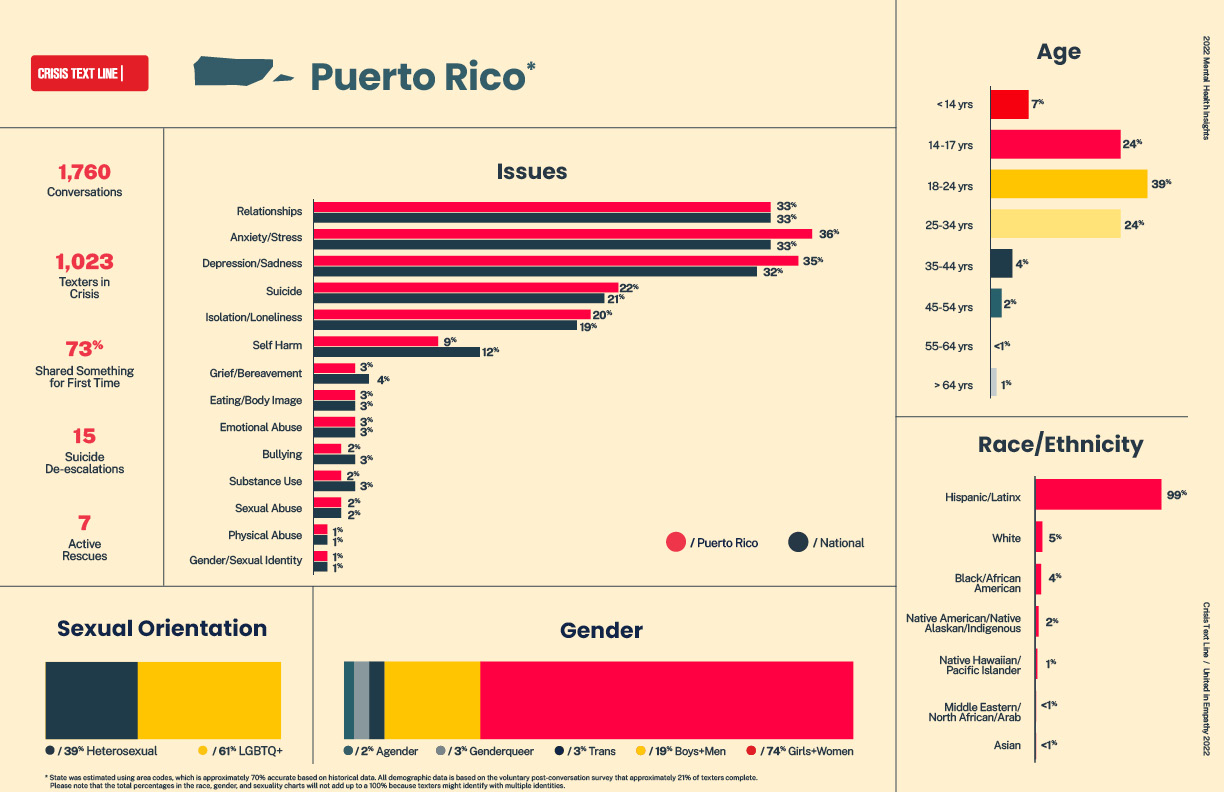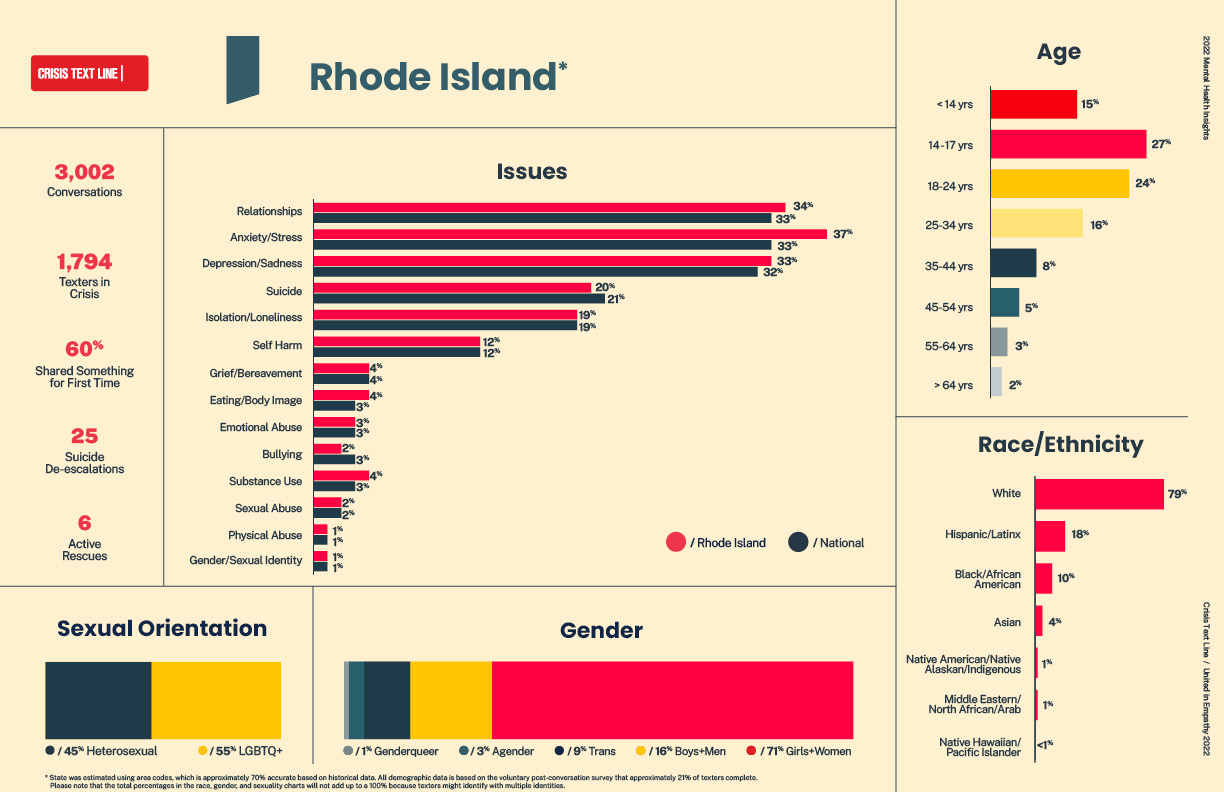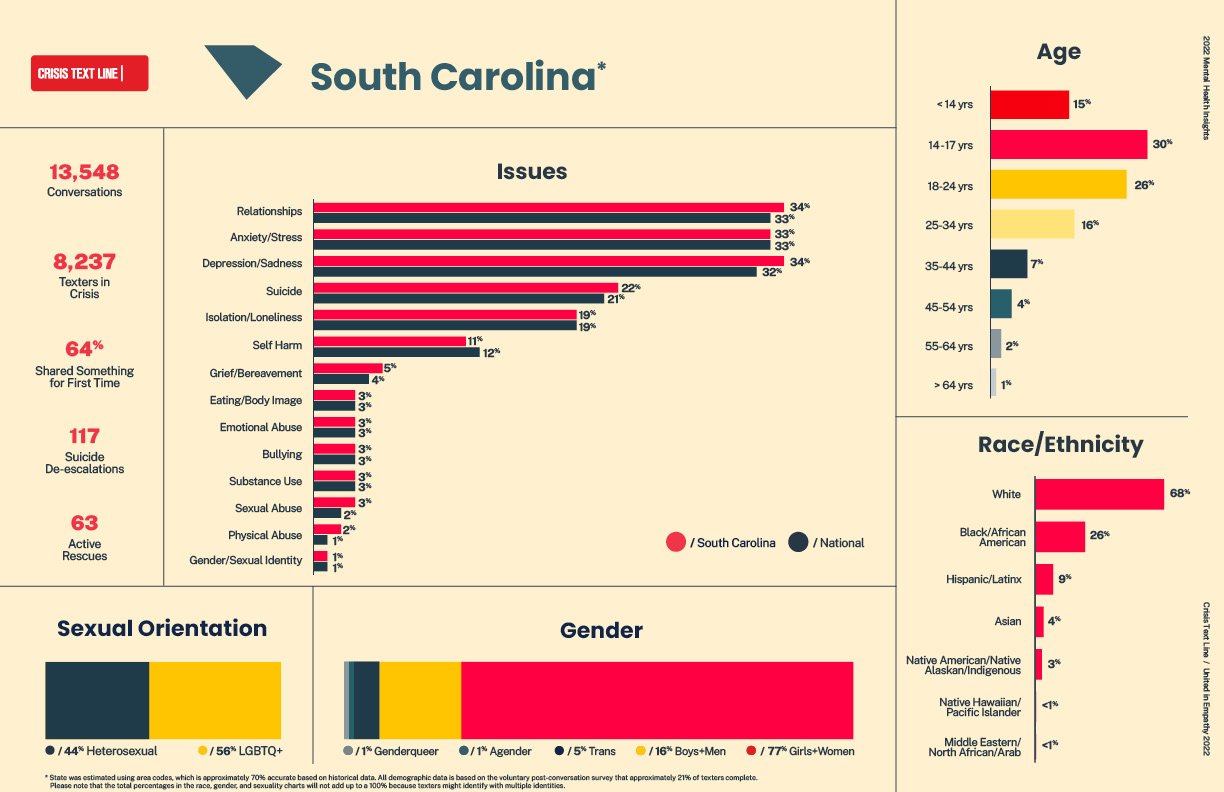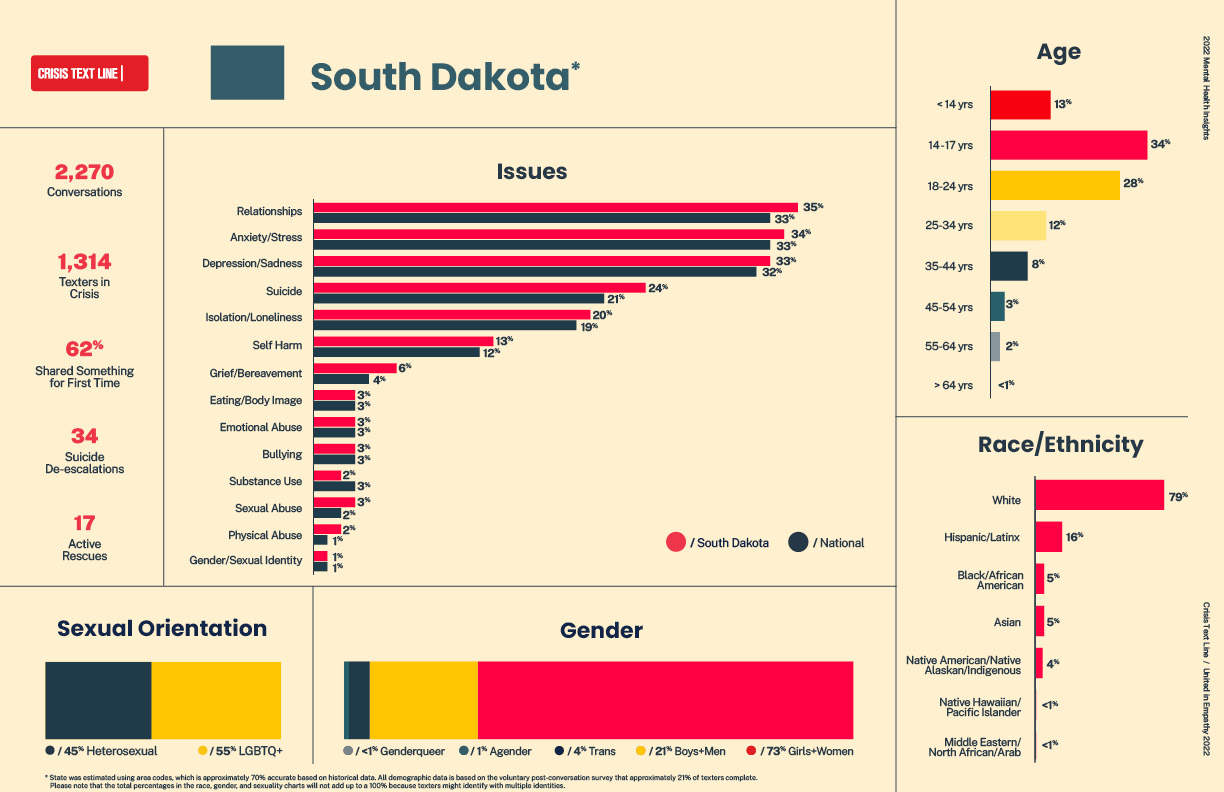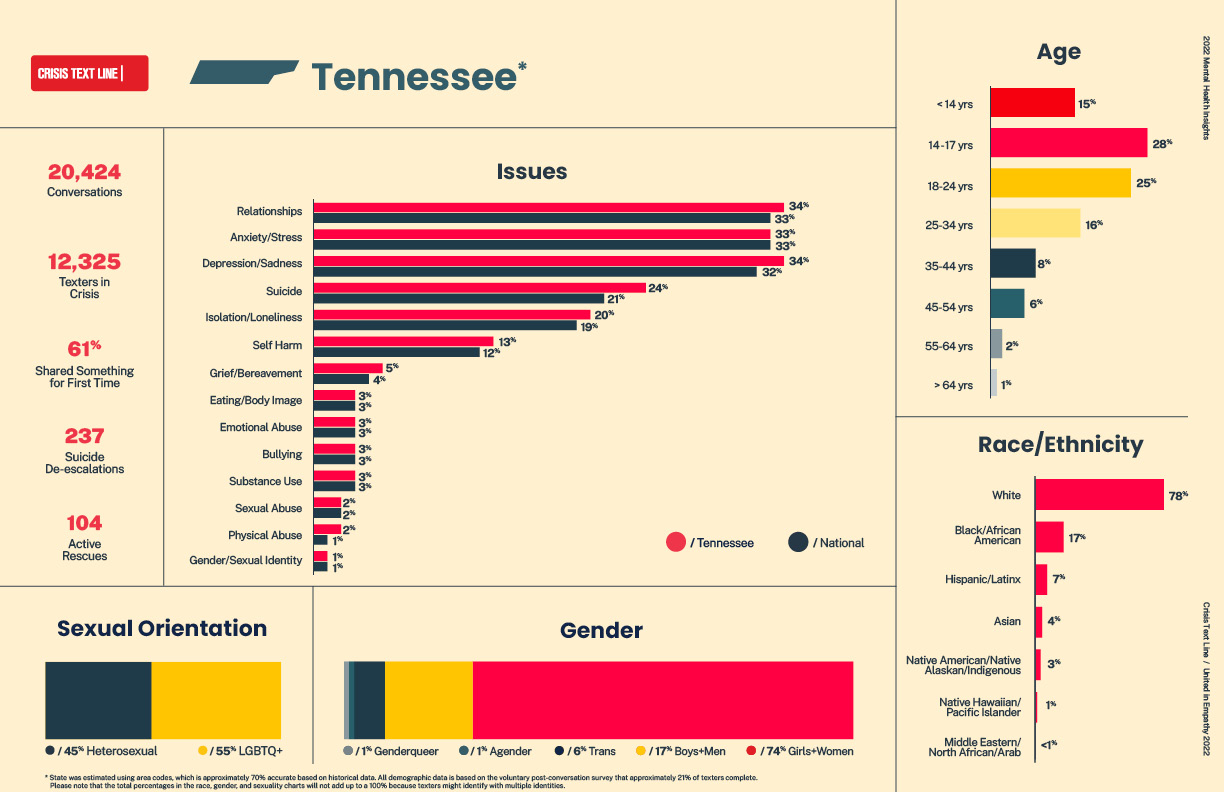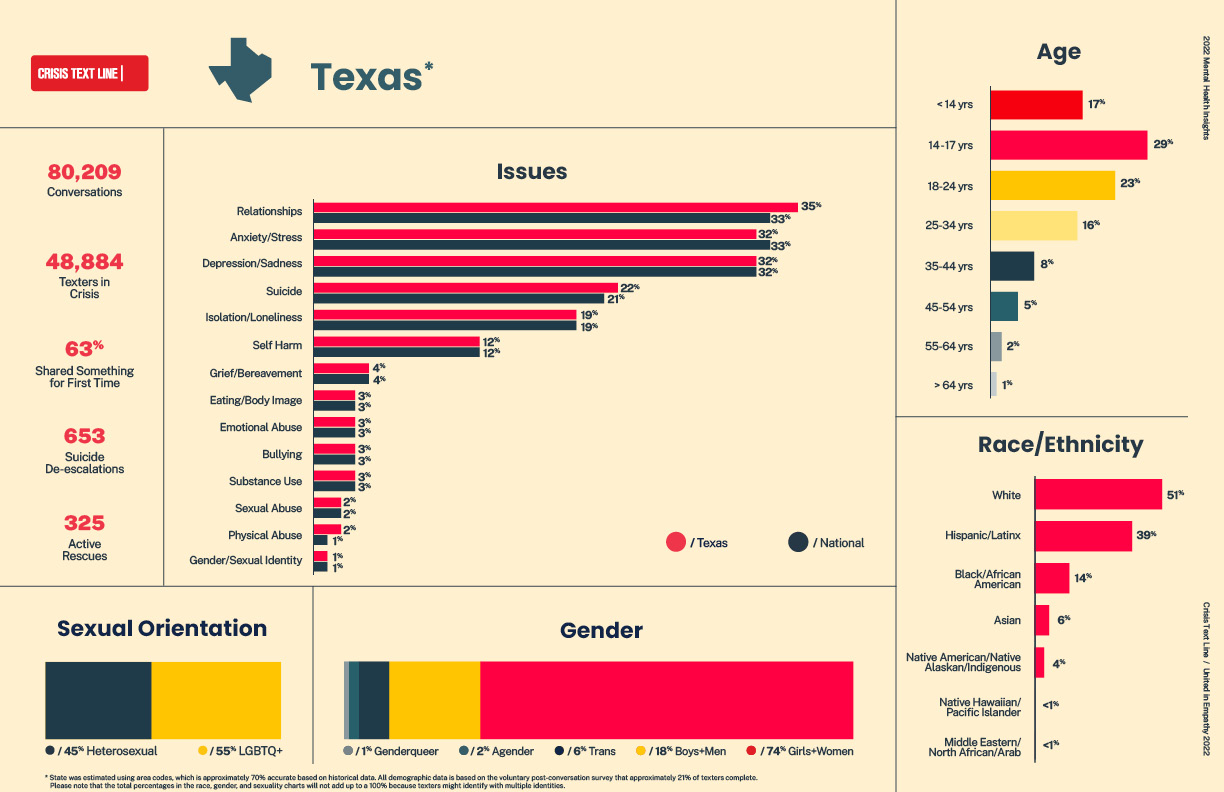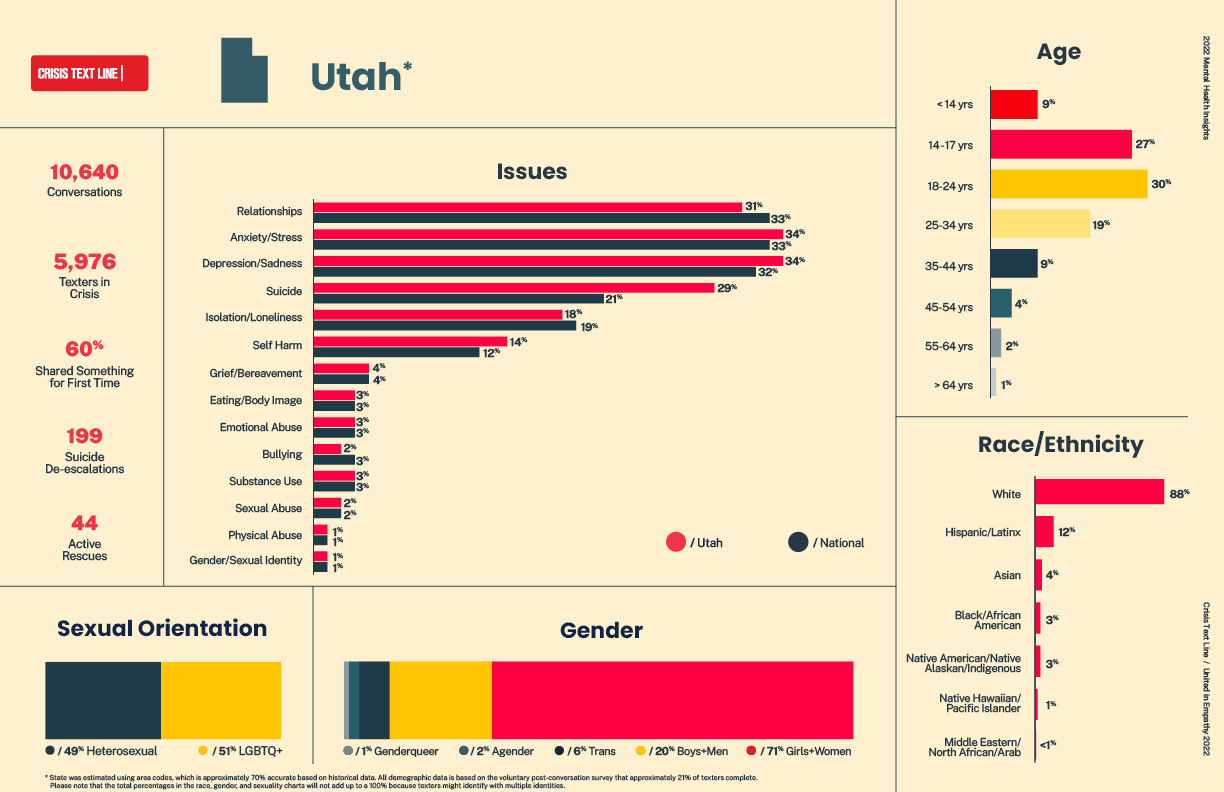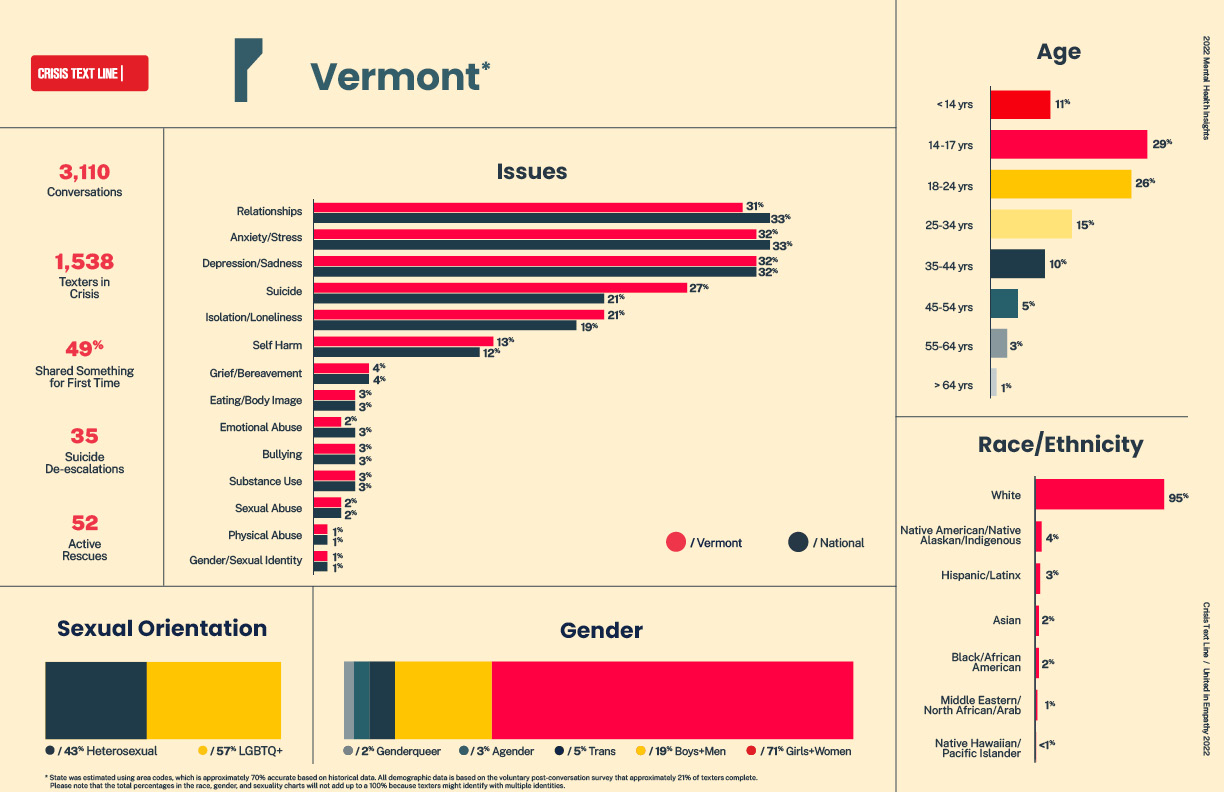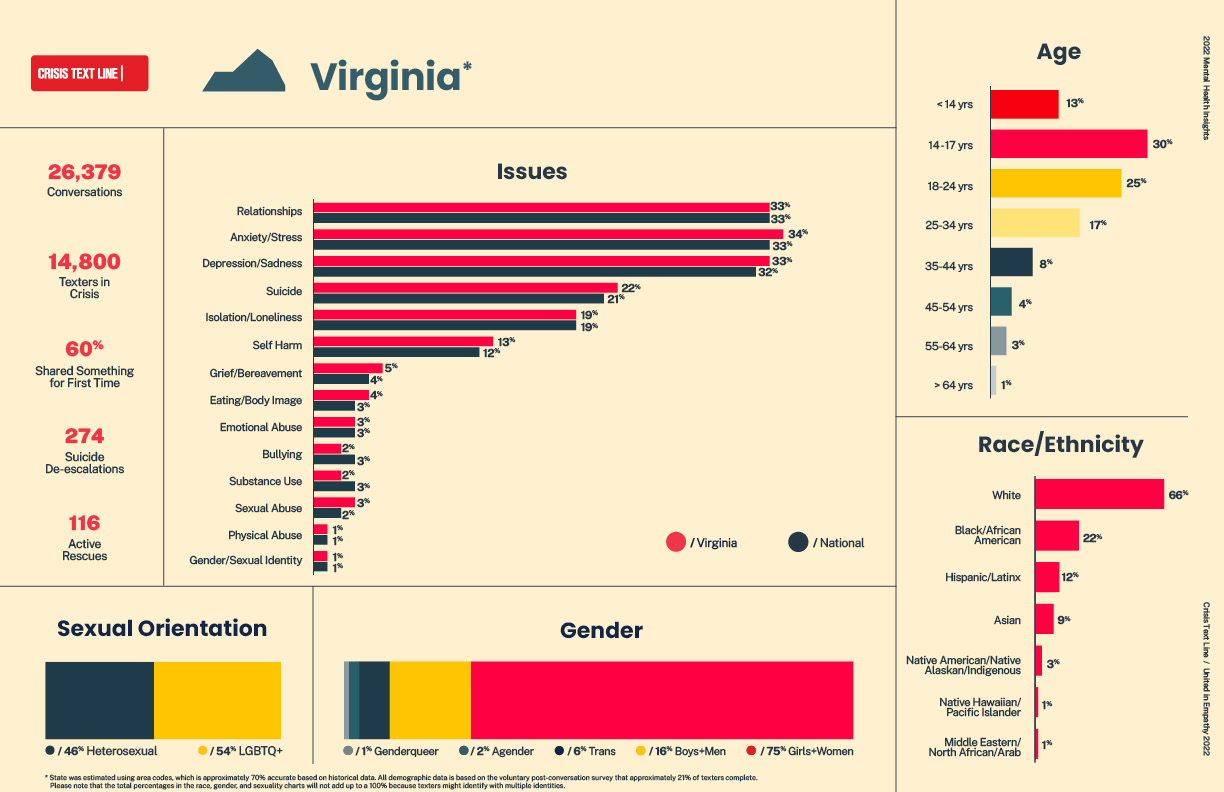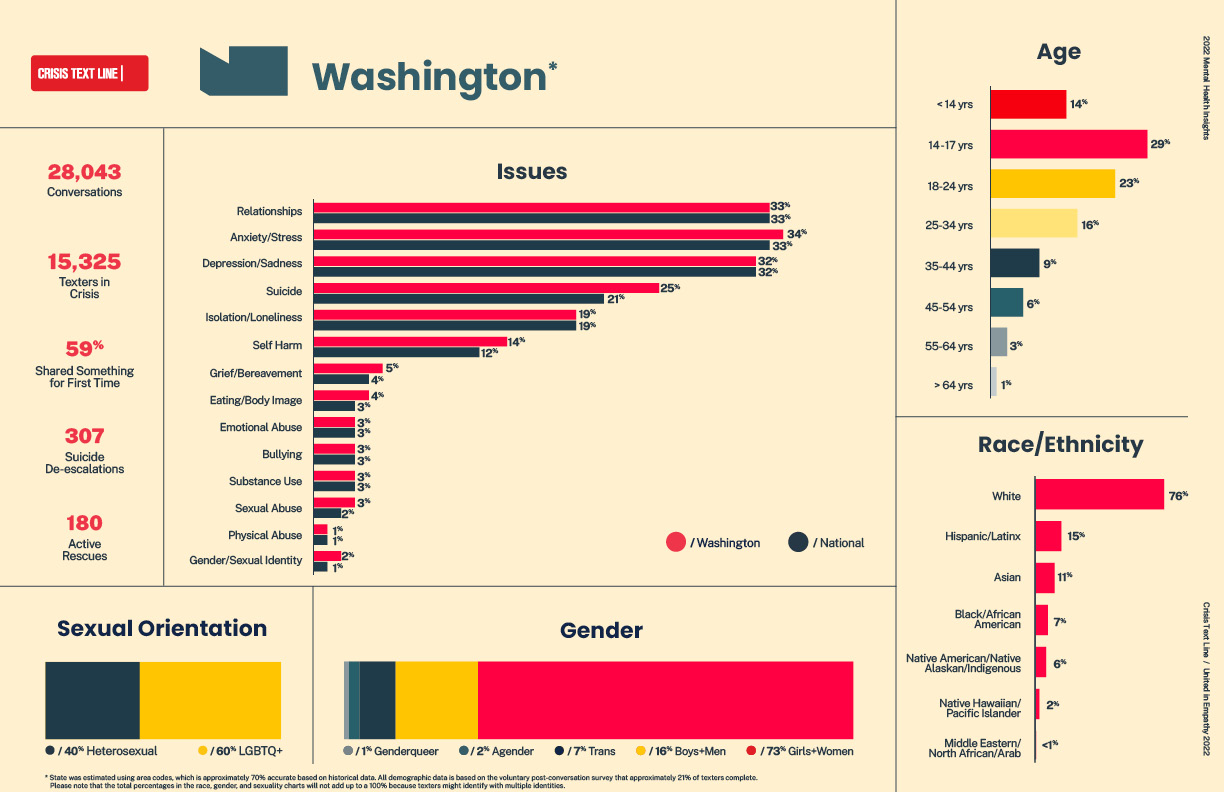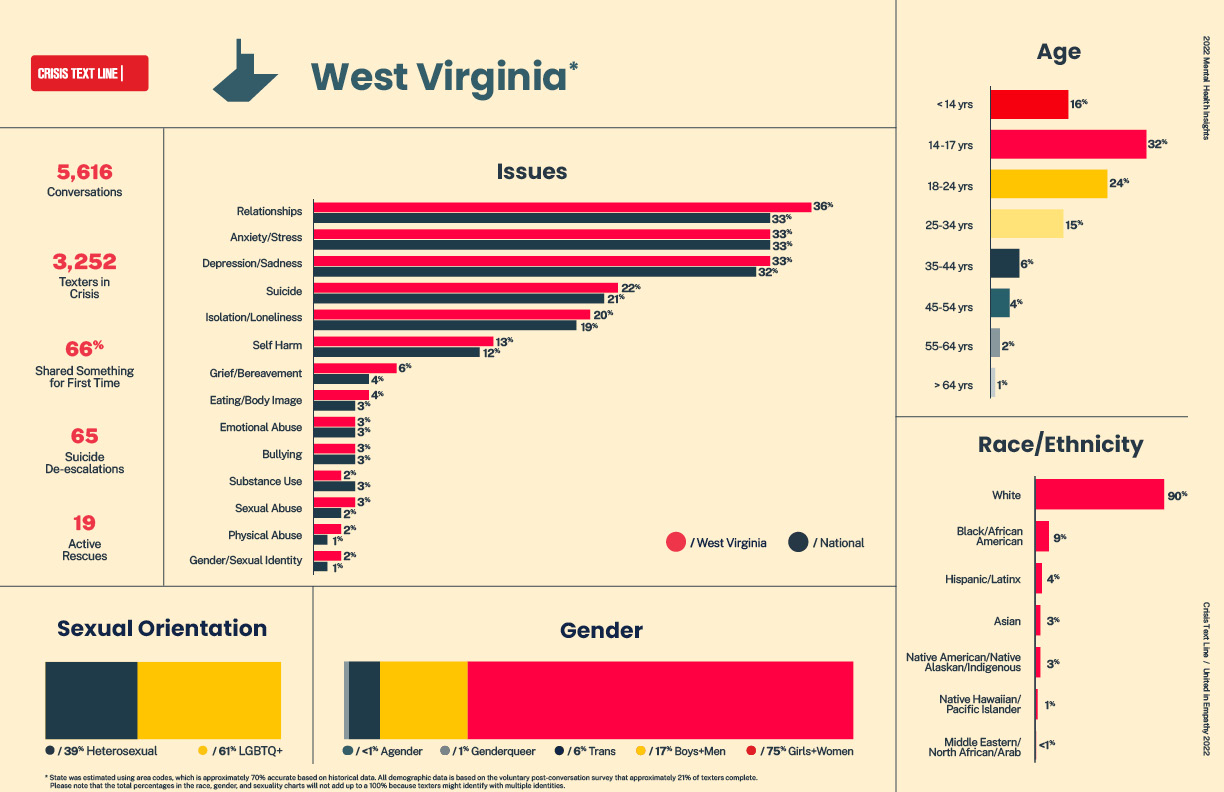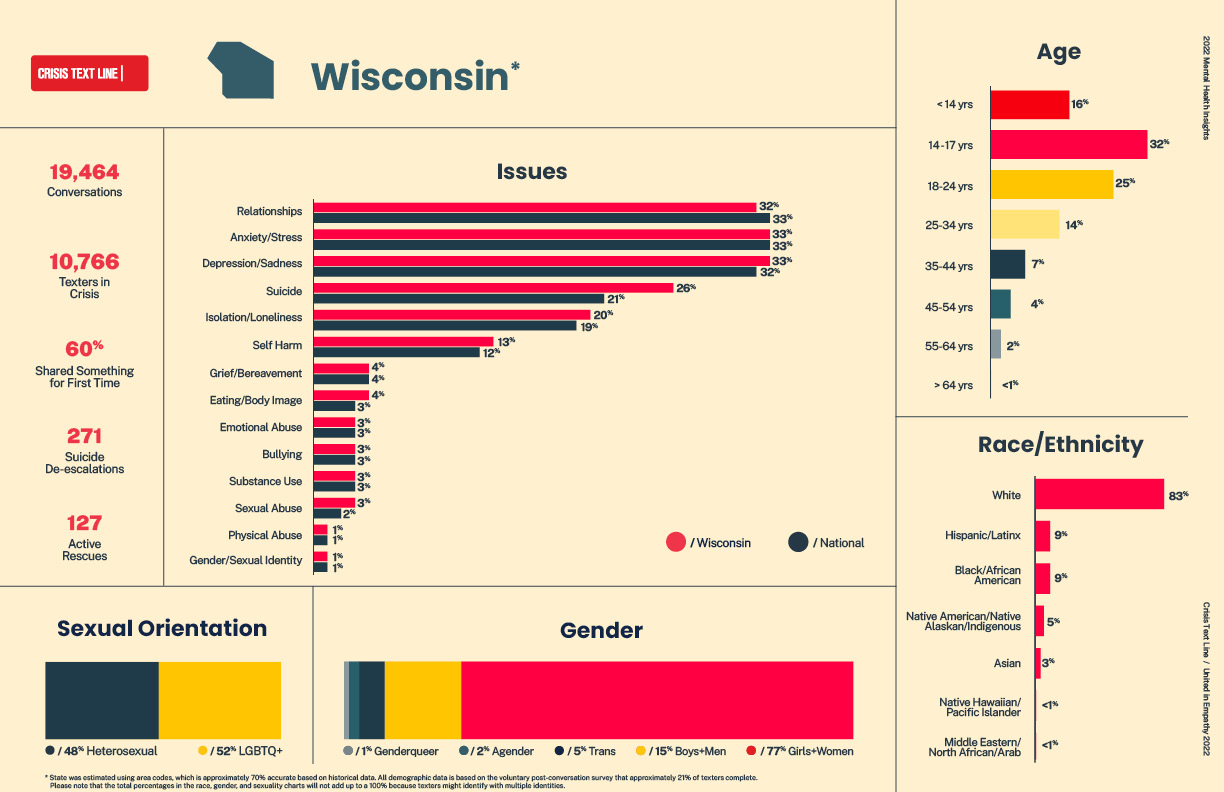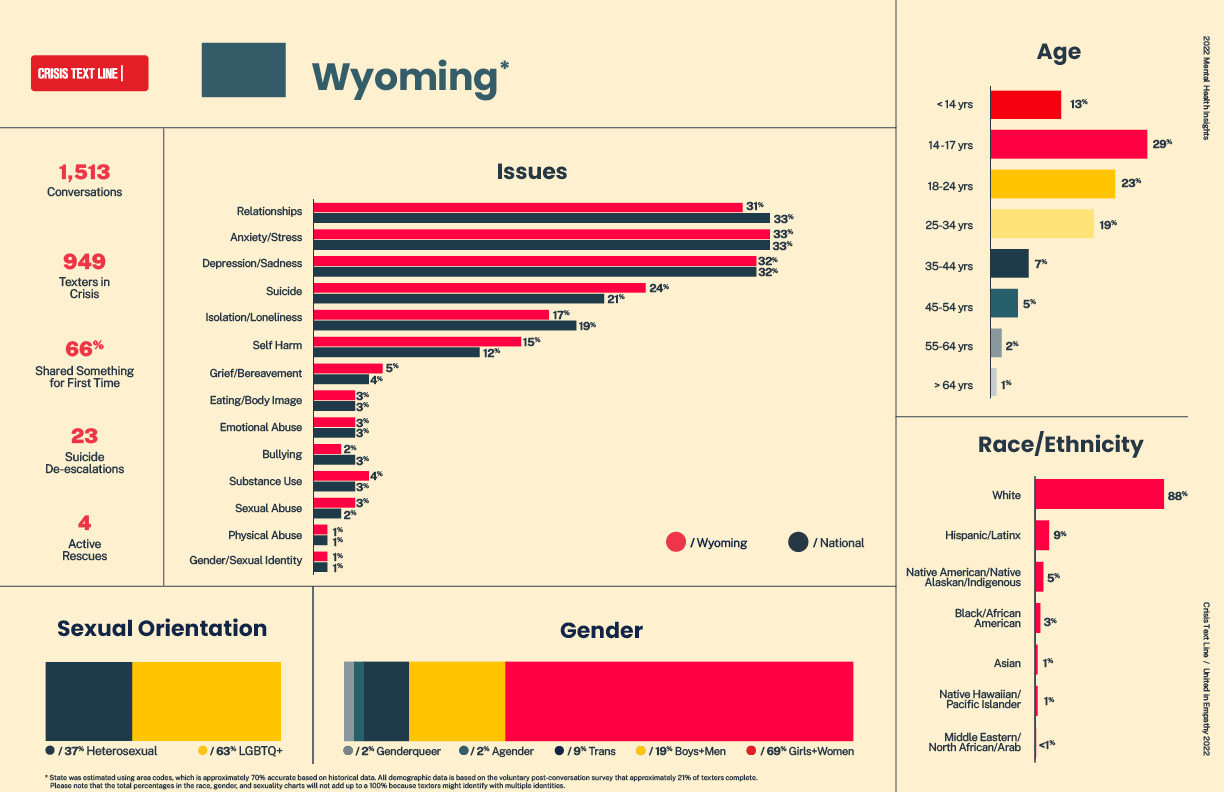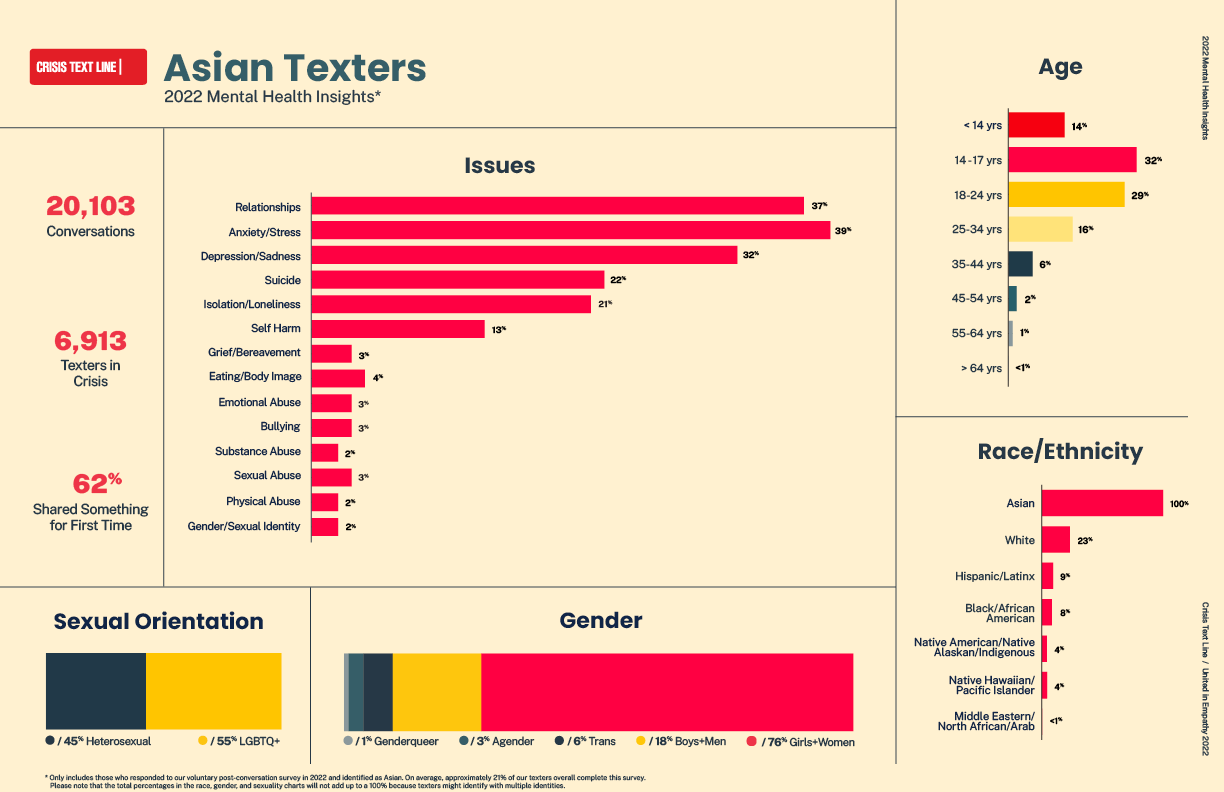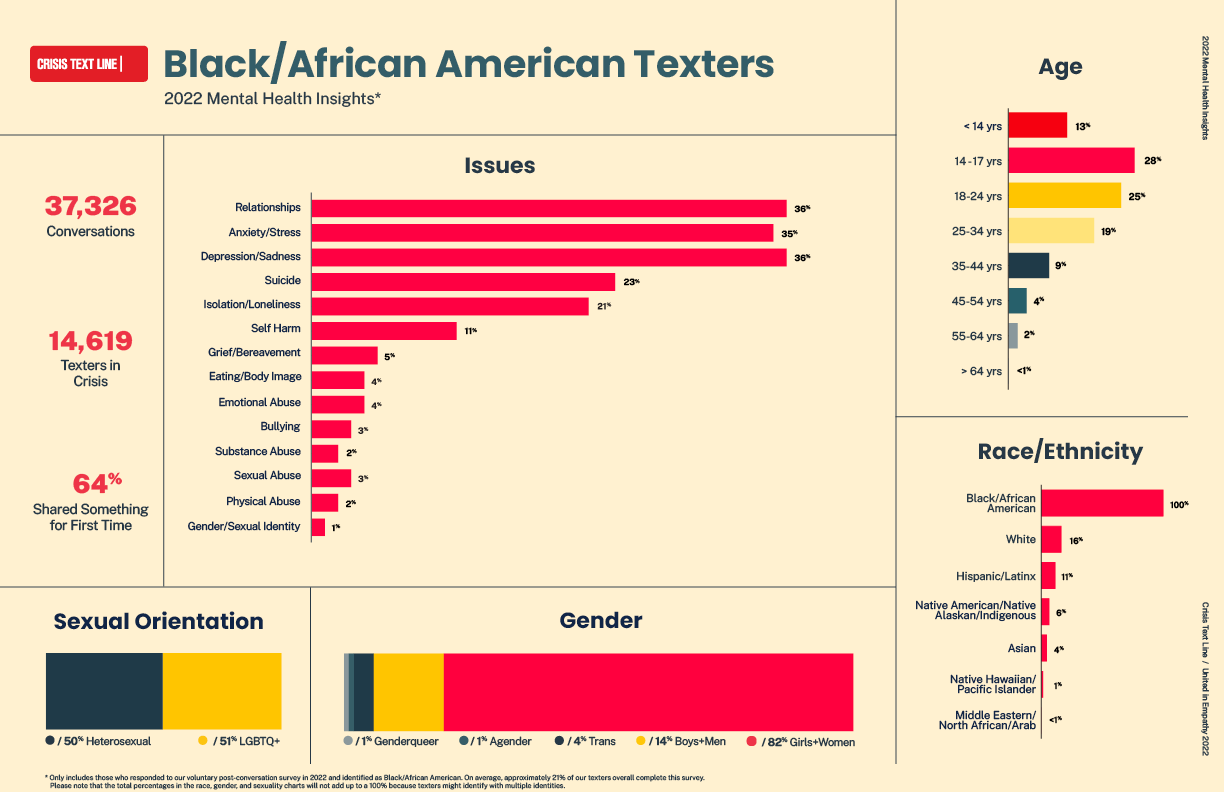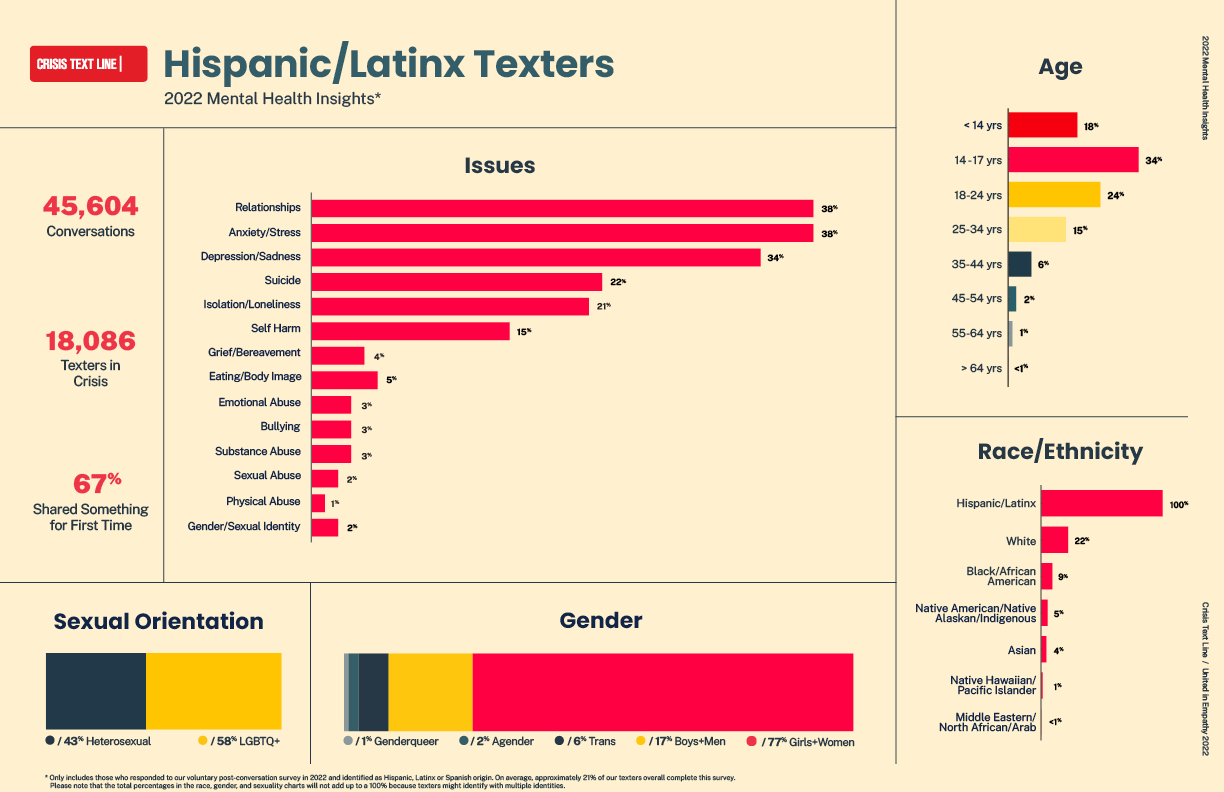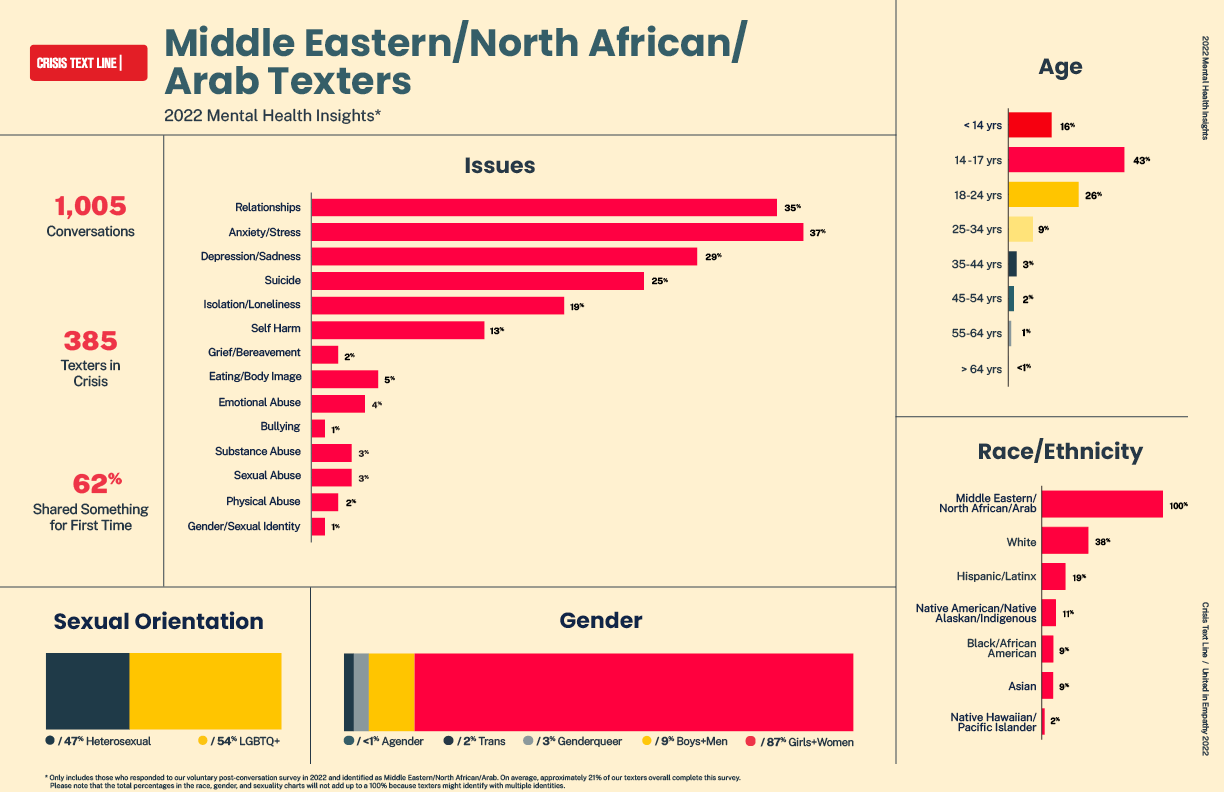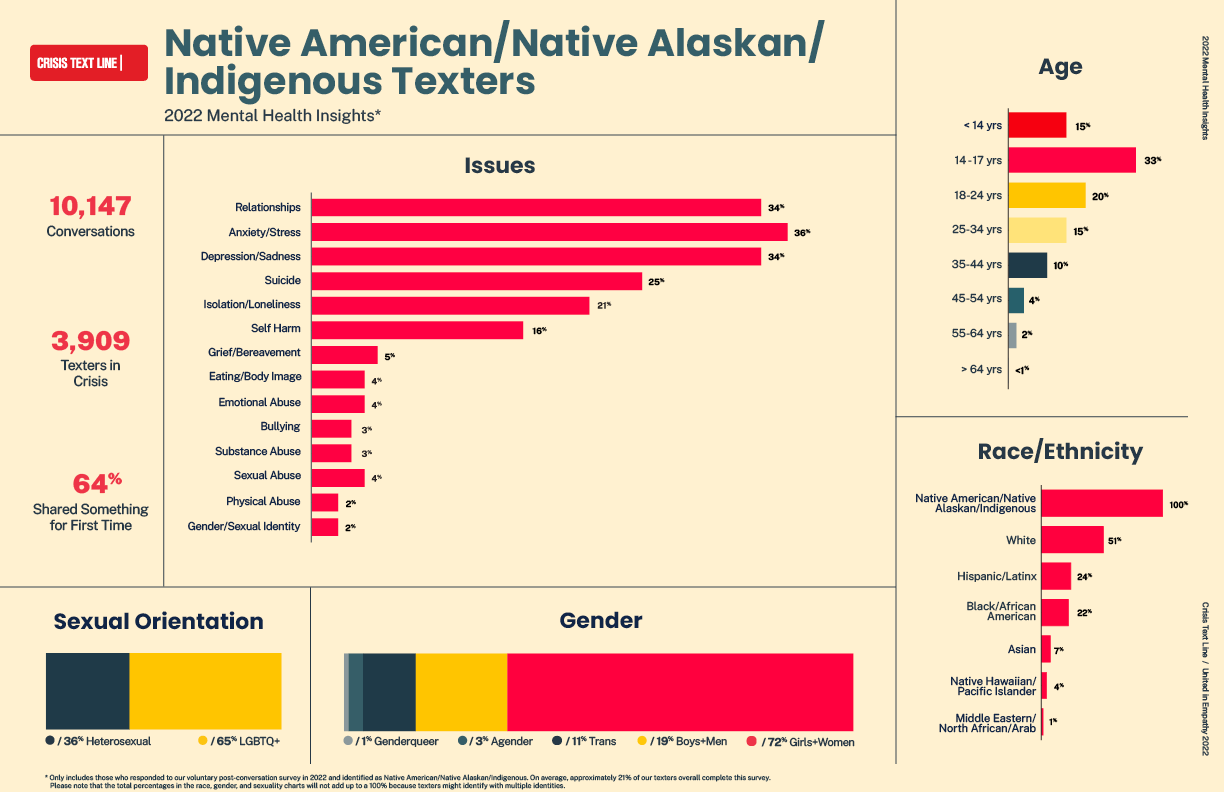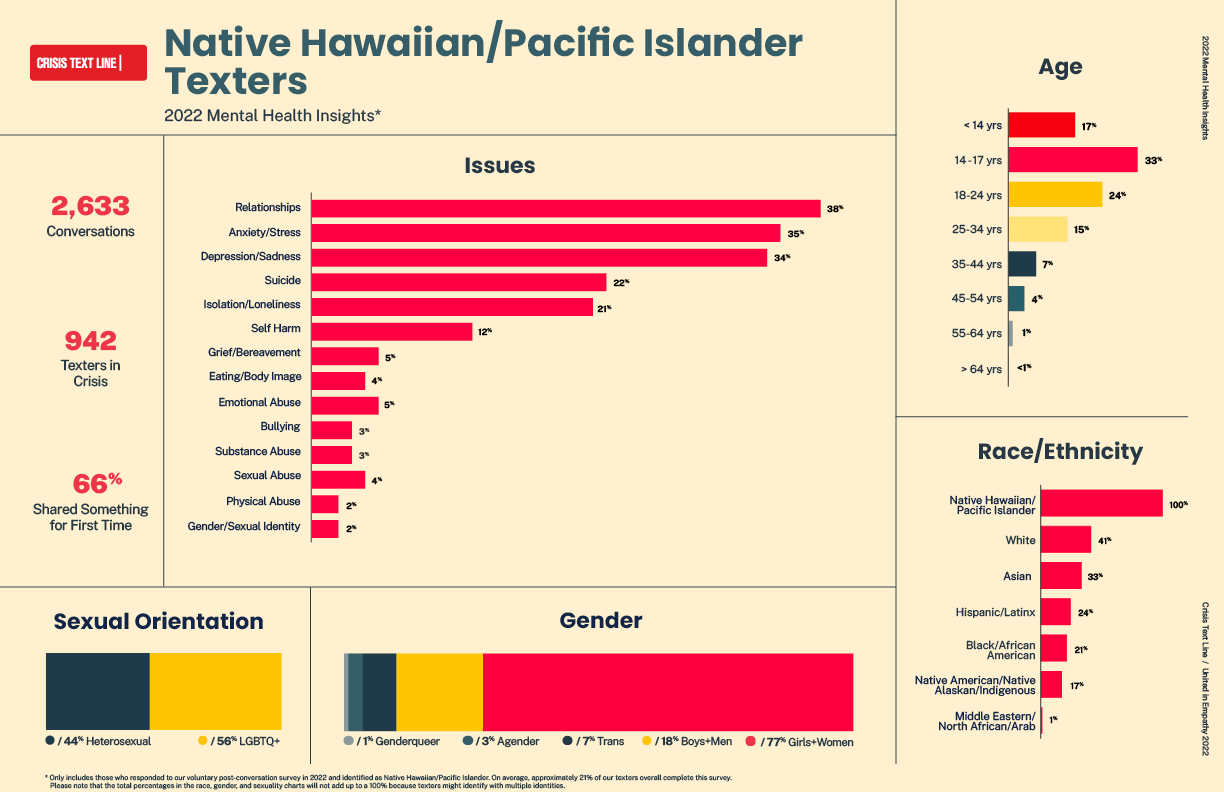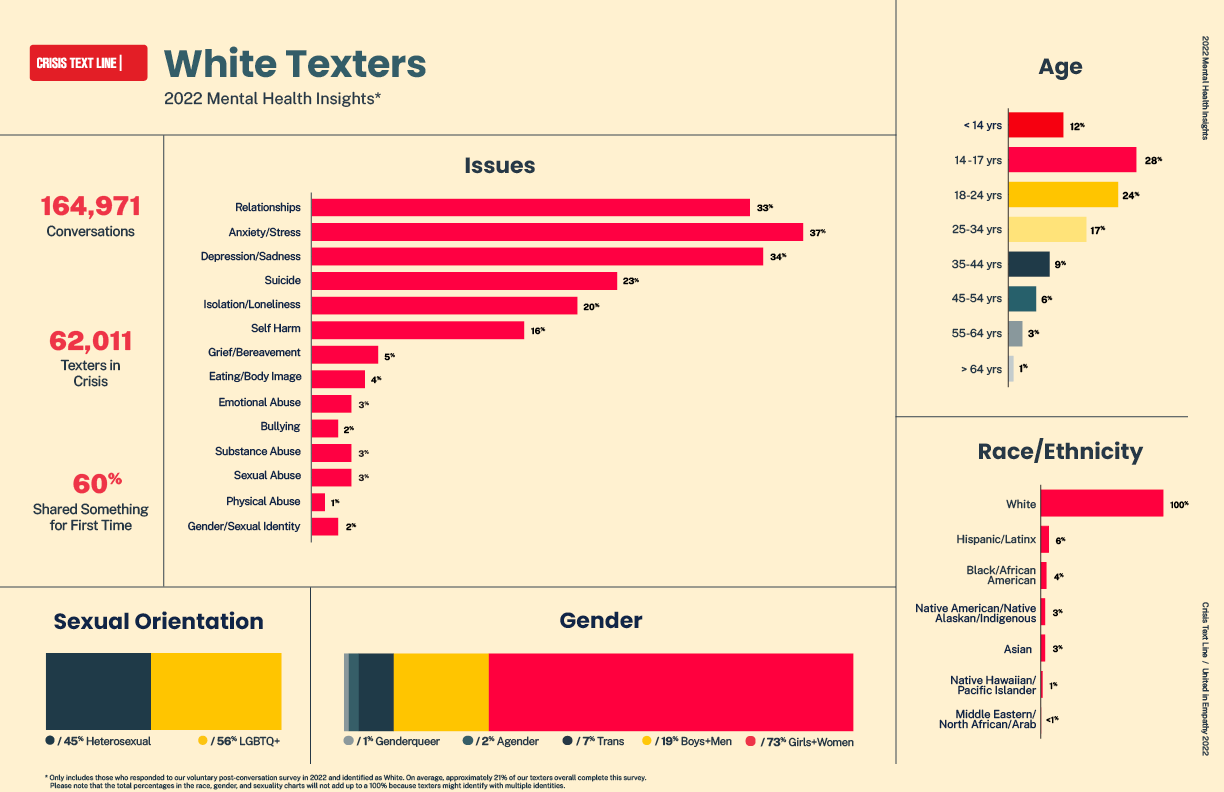United in Empathy
The United States is in the midst of a mental health emergency, and Crisis Text Line has a unique insight into this crisis as a free, 24/7 and confidential mental health support service. We field over a million conversations with texters across the country each year or over 3,500 every day. We are able to track mental health issues and social stressors that weigh on our texters, as well as the coping tools and strategies that help them get through a crisis.
For our 4th annual United in Empathy Report, the Crisis Text Line Research and Impact team analyzed 1.3 million conversations in 2022 to learn about the issues that texters discussed with us, and the coping strategies that helped them feel better.
Here are some highlights of this research:
National Summary
Explore the trends by state
Select your state below to learn about the state of mental health across the country.
Select your state below to learn about the state of mental health across the country.
Explore the trends by demographic
About the analysis
In our analysis, we sought to understand how people in pain were coping amid a mental health crisis and how this crisis uniquely impacted America’s youth.
This analysis was conducted by Crisis Text Line’s own Research team utilizing anonymized and de-identified information gathered in 2022. The foundation for this analysis was information from three primary sources:
- Conversation Data. Insights from conversation helped us explore the language of crisis in 2022, as well as the top coping mechanisms that texters found in collaboration with volunteer Crisis Counselors.
- Volunteer Crisis Counselor generated Data. Volunteer Crisis Counselors tag most conversations for key topics discussed, such as depression, self harm, eating disorders and body image issues. They also screen texters for suicidal risk using a ladder-up risk assessment. This information helped us determine which issues increased or decreased in our conversations with texters in 2022.
- Optional post-conversation survey Data. After each conversation, we ask texters to complete a voluntary survey on demographic information, satisfaction, and some other measures that help us better serve our users. About 21% of texters complete this survey, which allows us to explore trends in the demographic backgrounds of our texters who respond to this survey.
Crisis Text Line texters are not reprepresenative of the population of the United States. Our texters tend to be younger than the average American age. Our goal is to serve anyone who comes to us; it is not to pursue a representative sample. However, in combination with other data sources, we have a unique perspective to contribute to the field of mental health.
Our Past United in Empathy Reports
